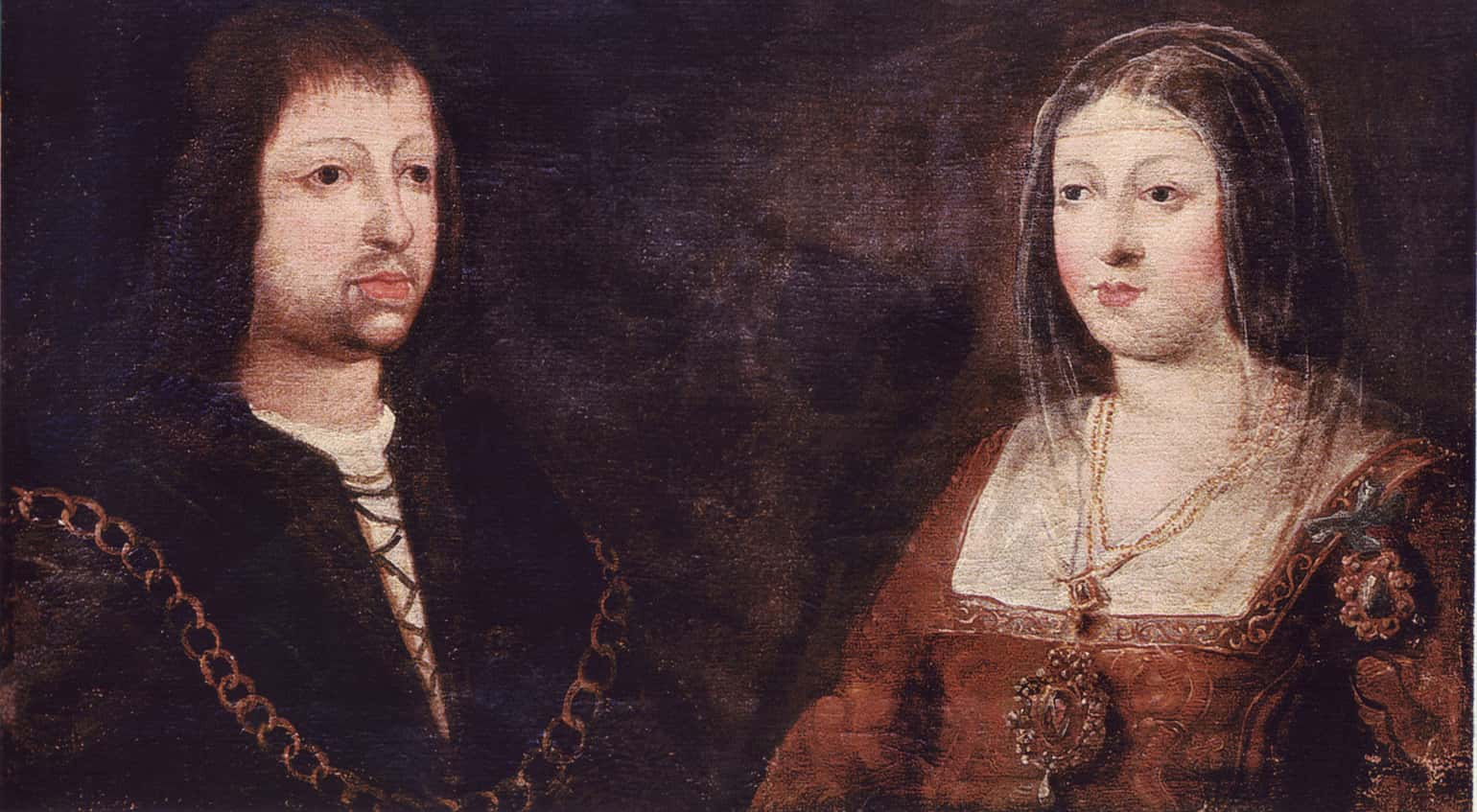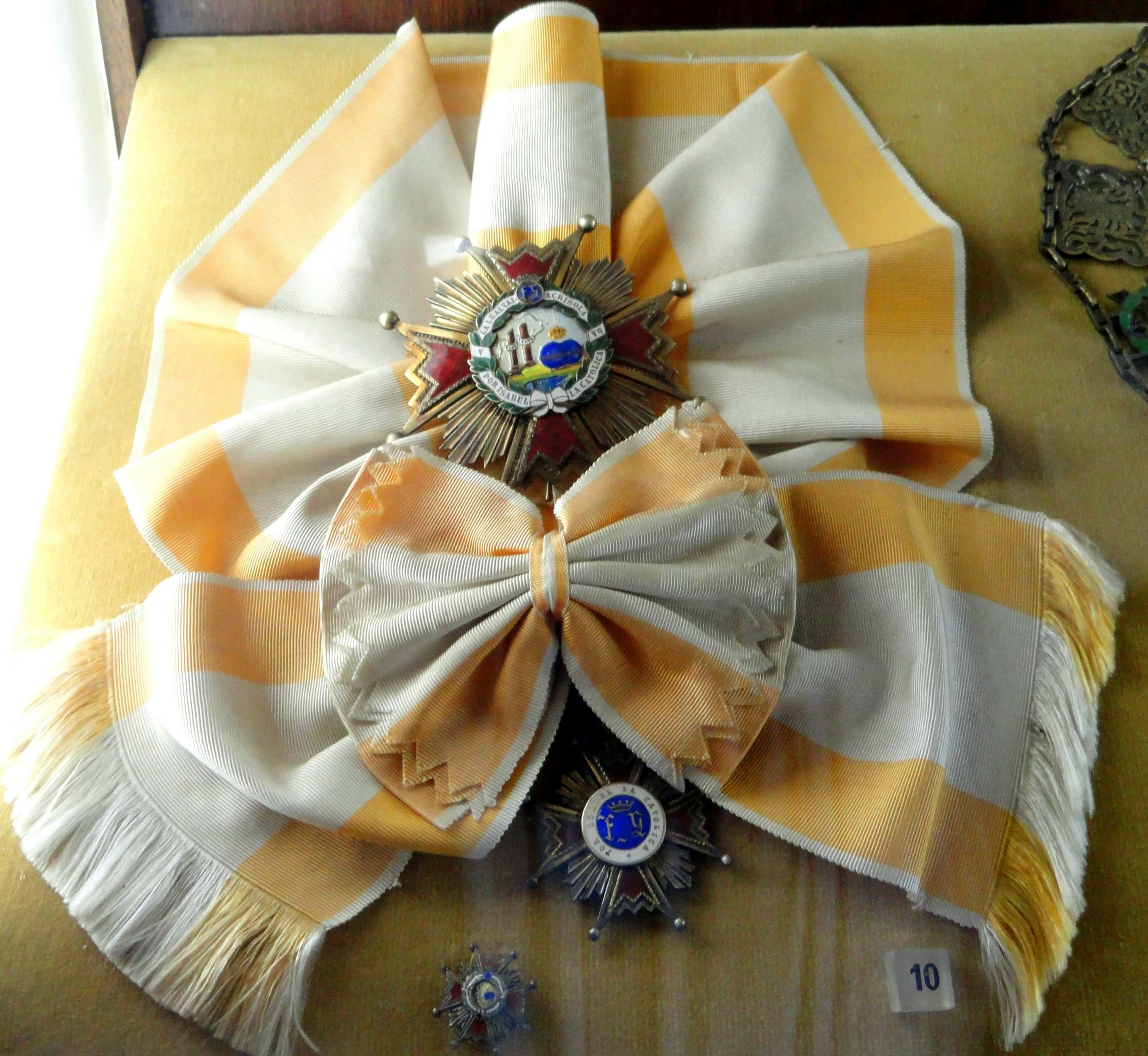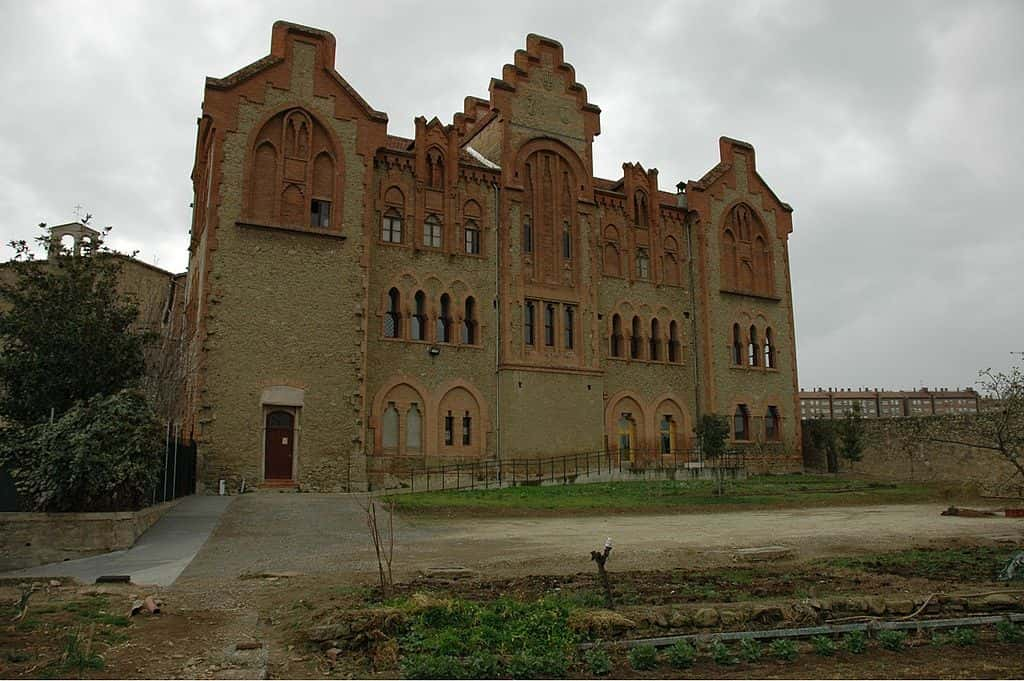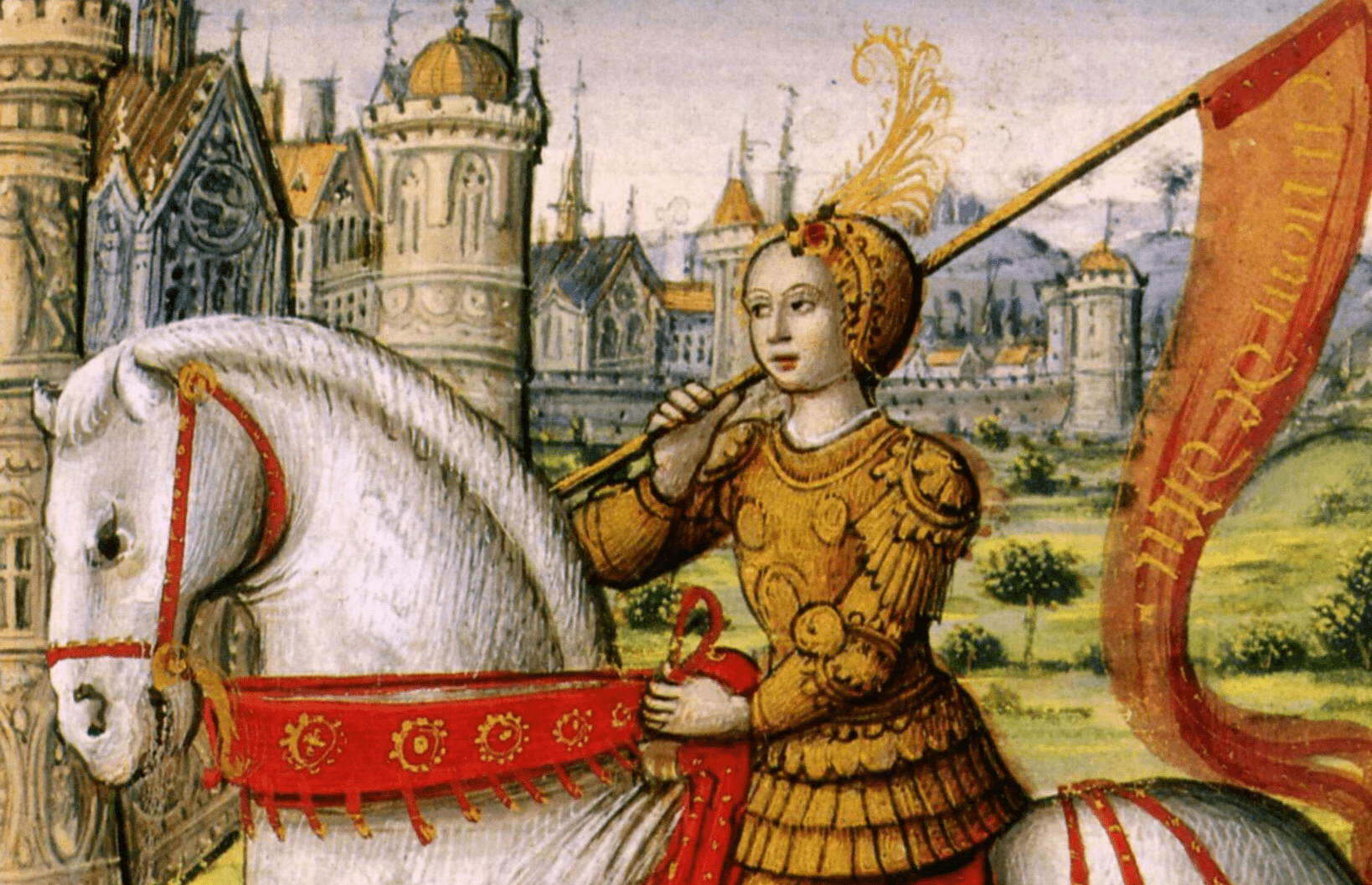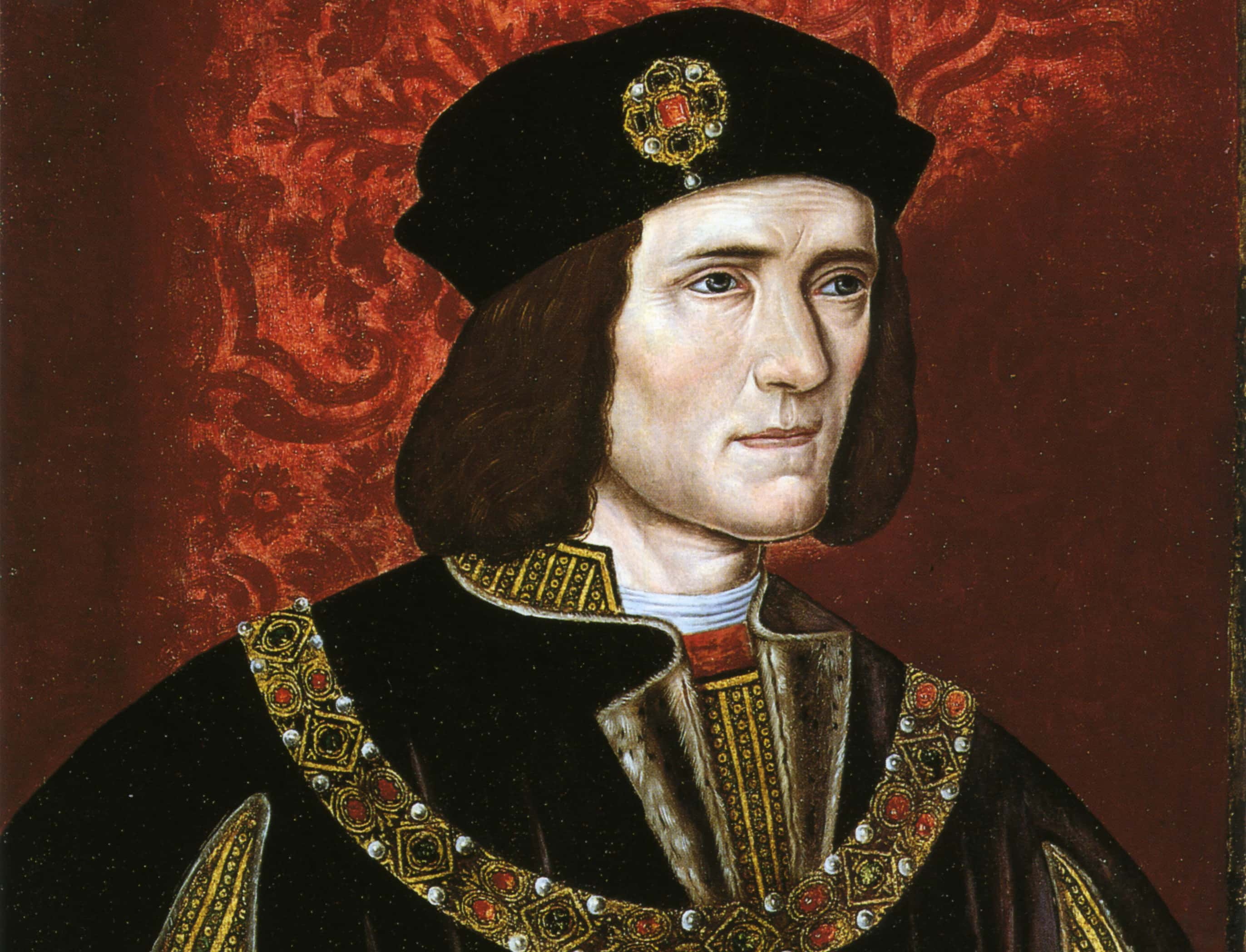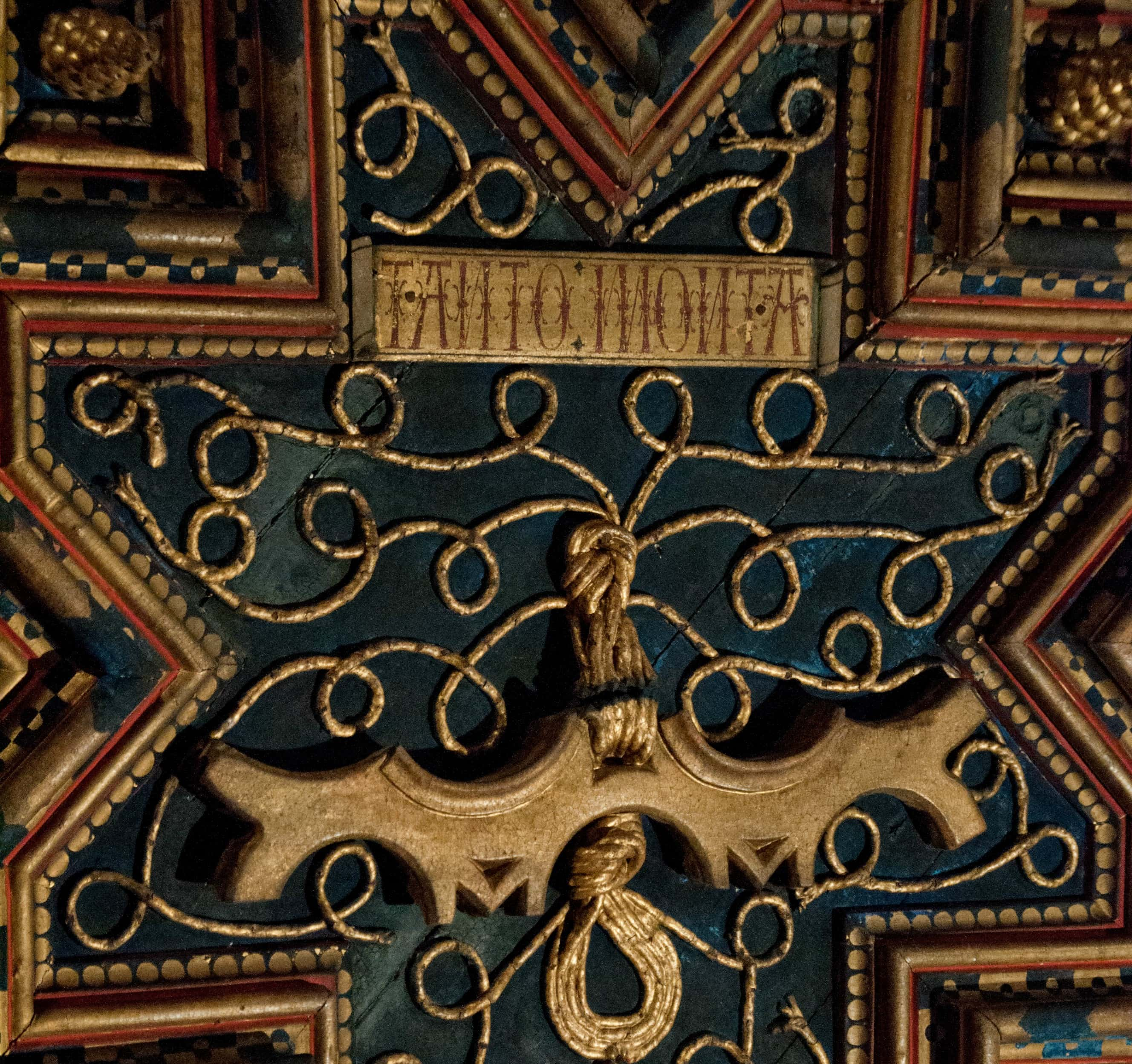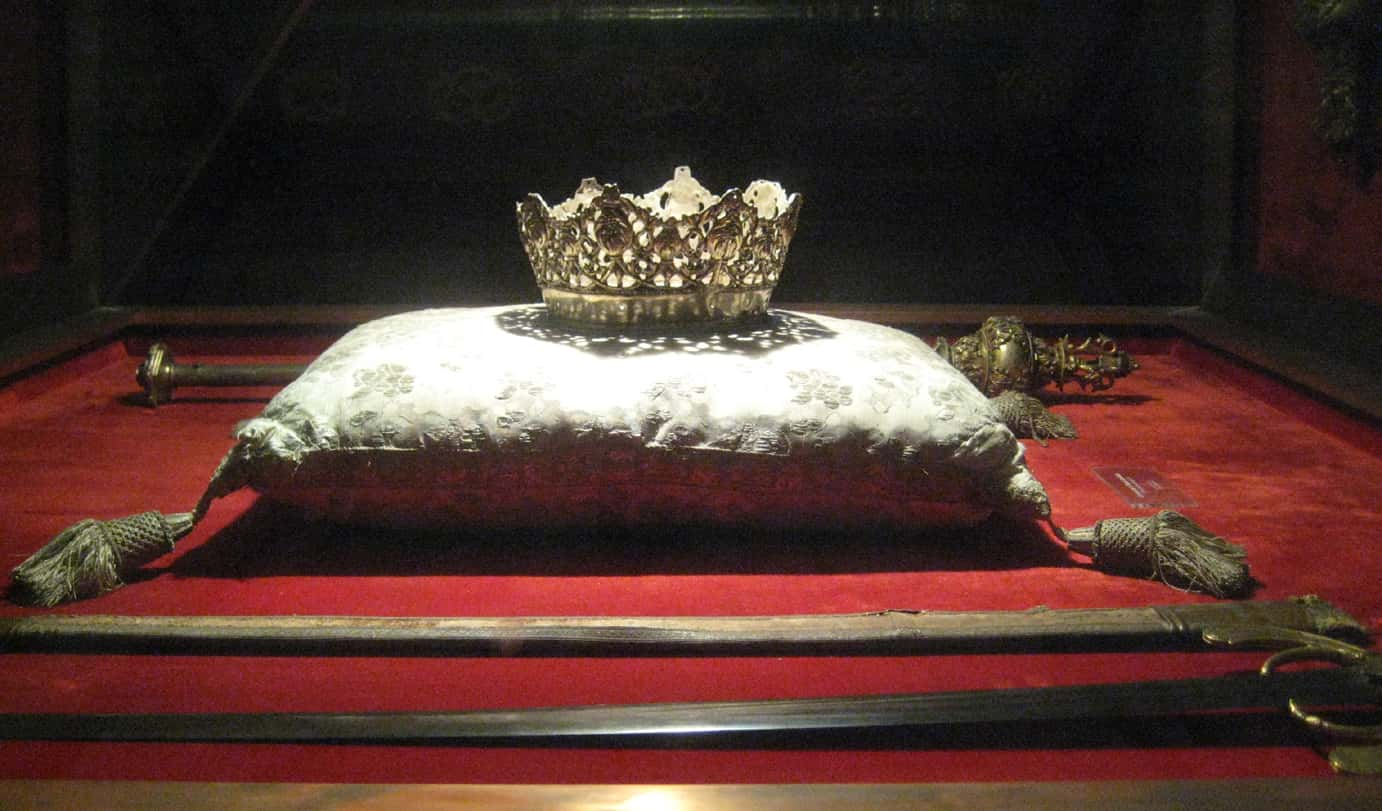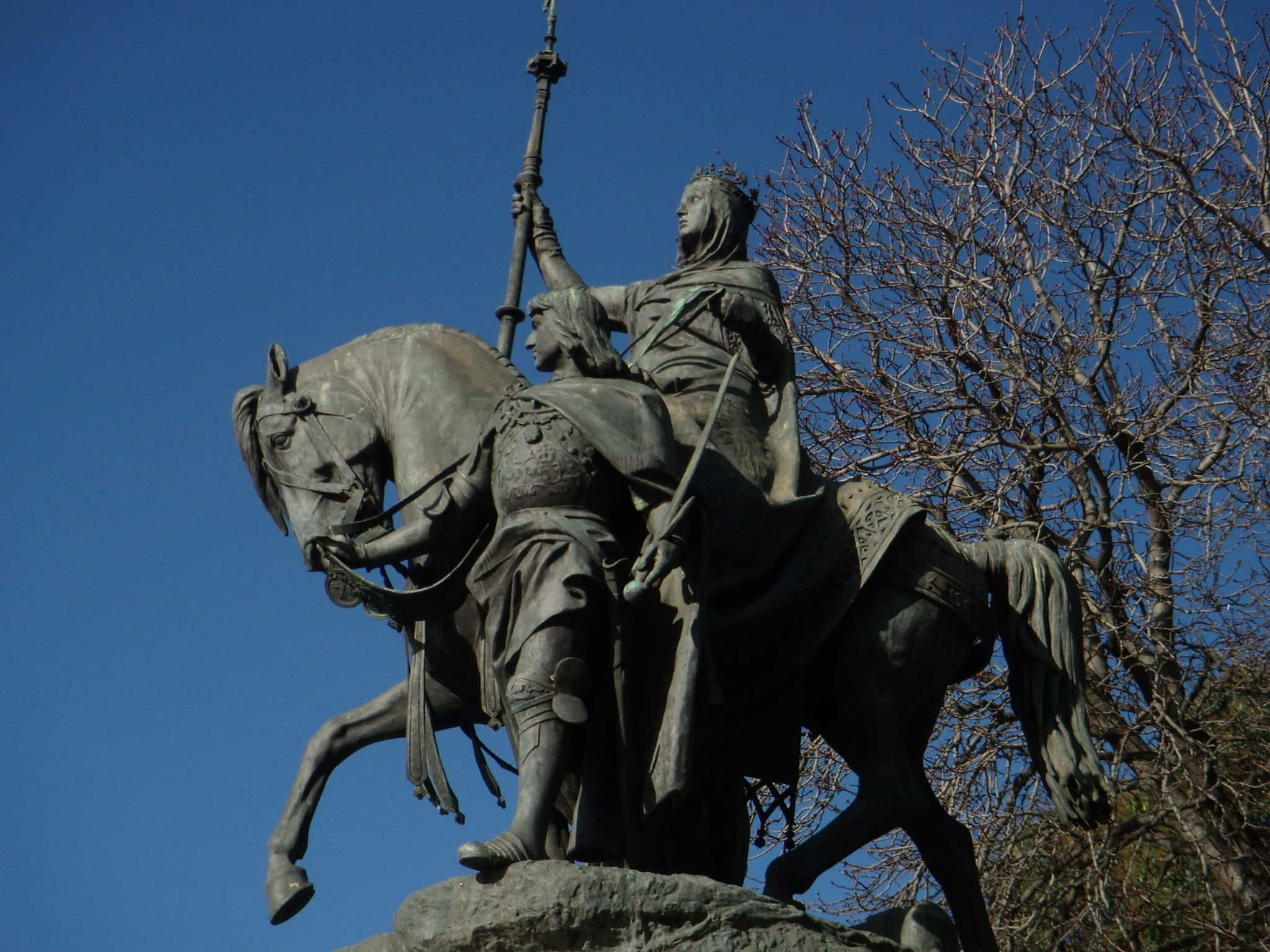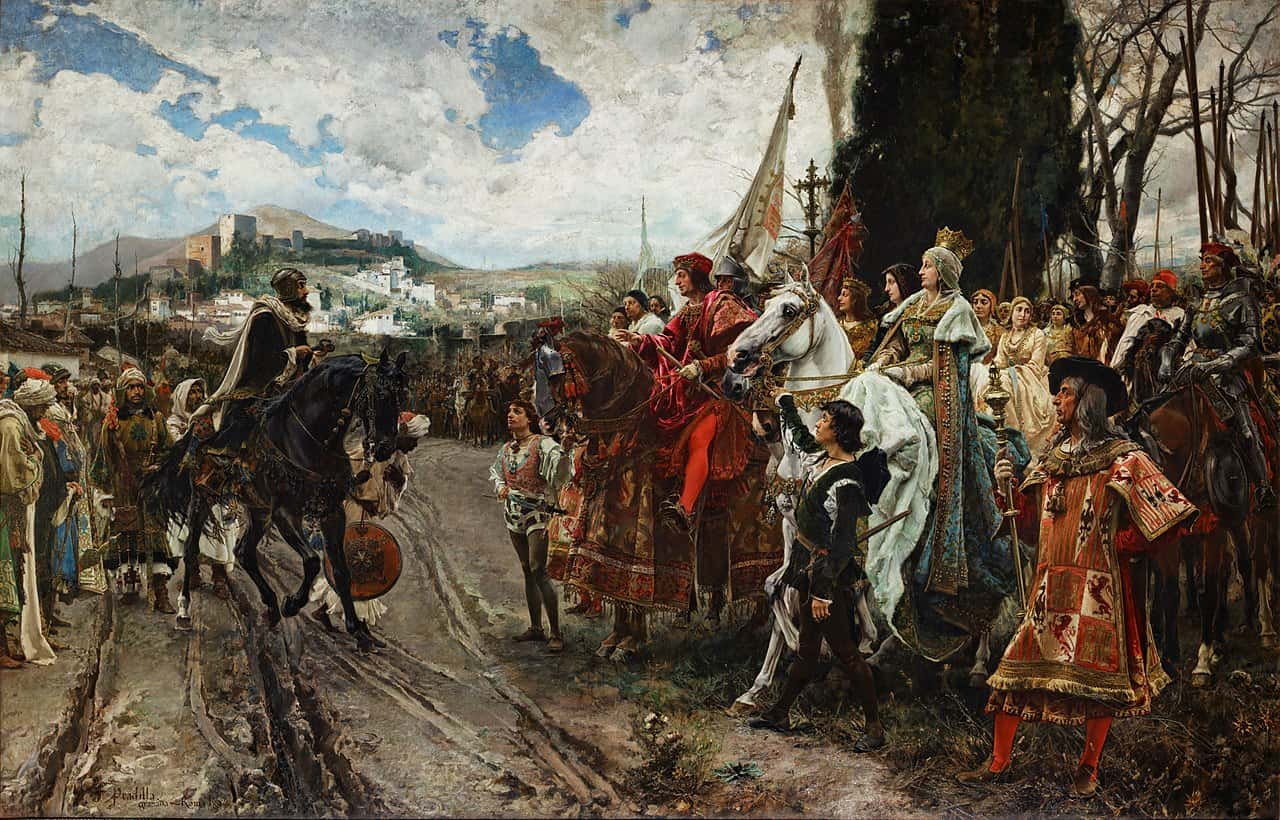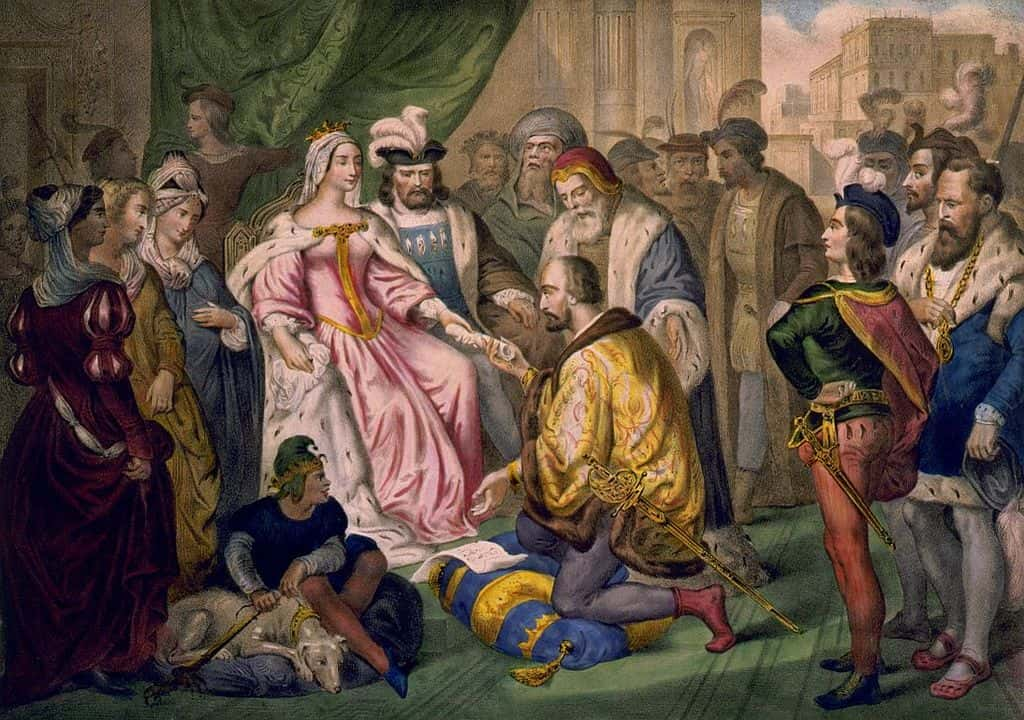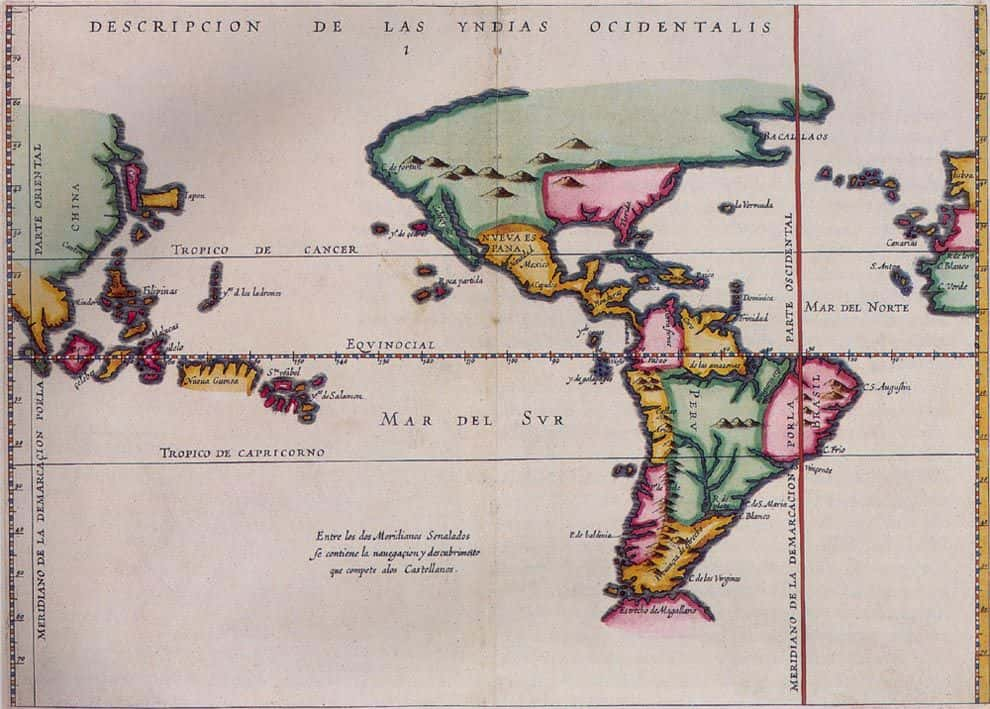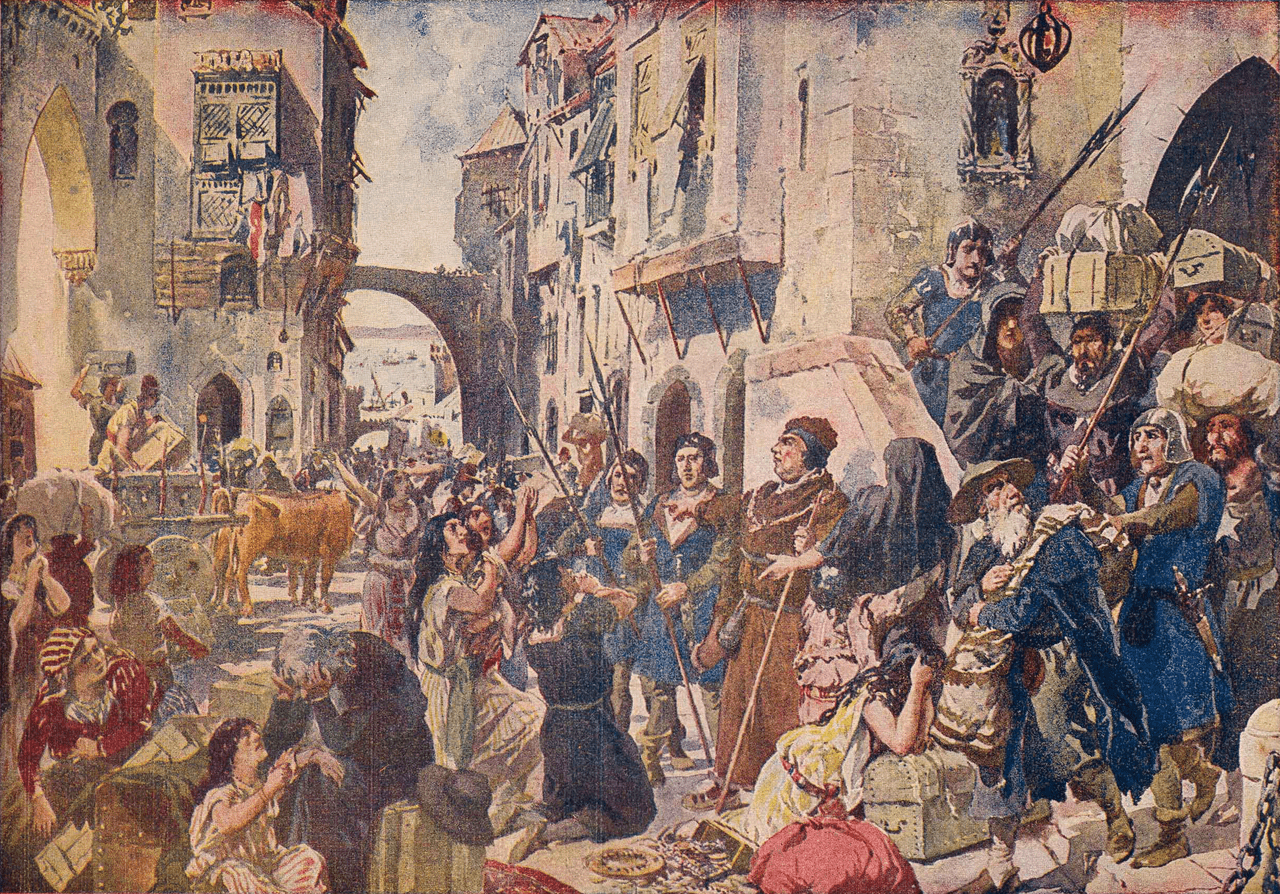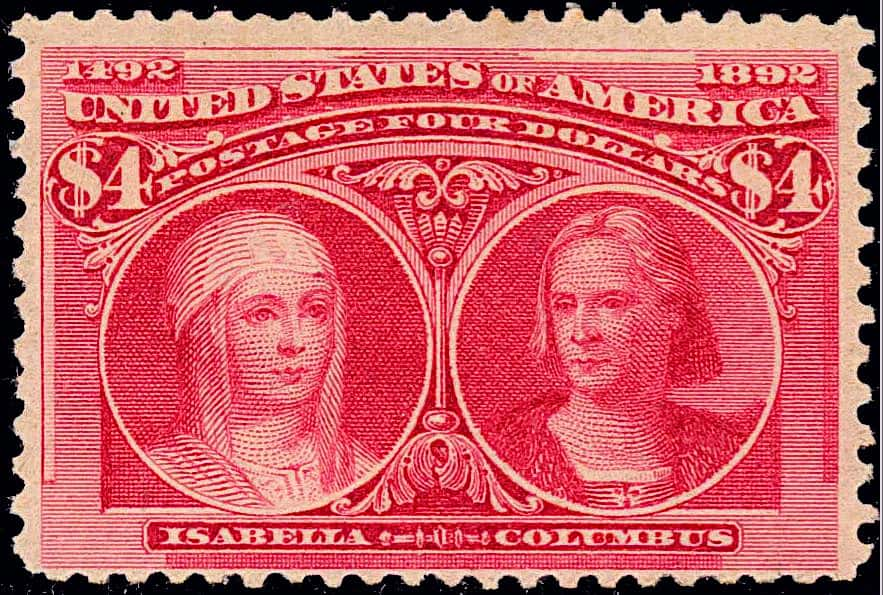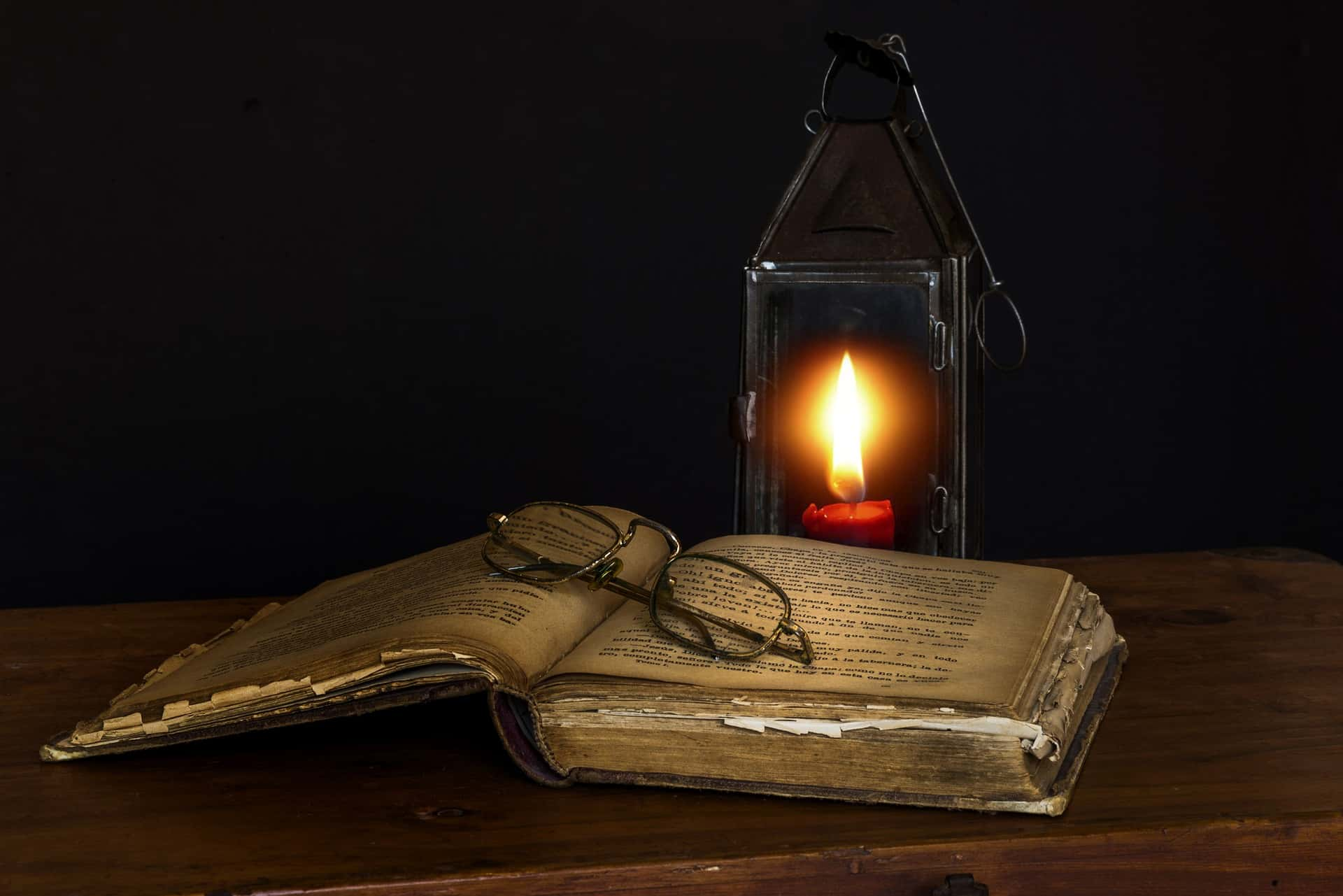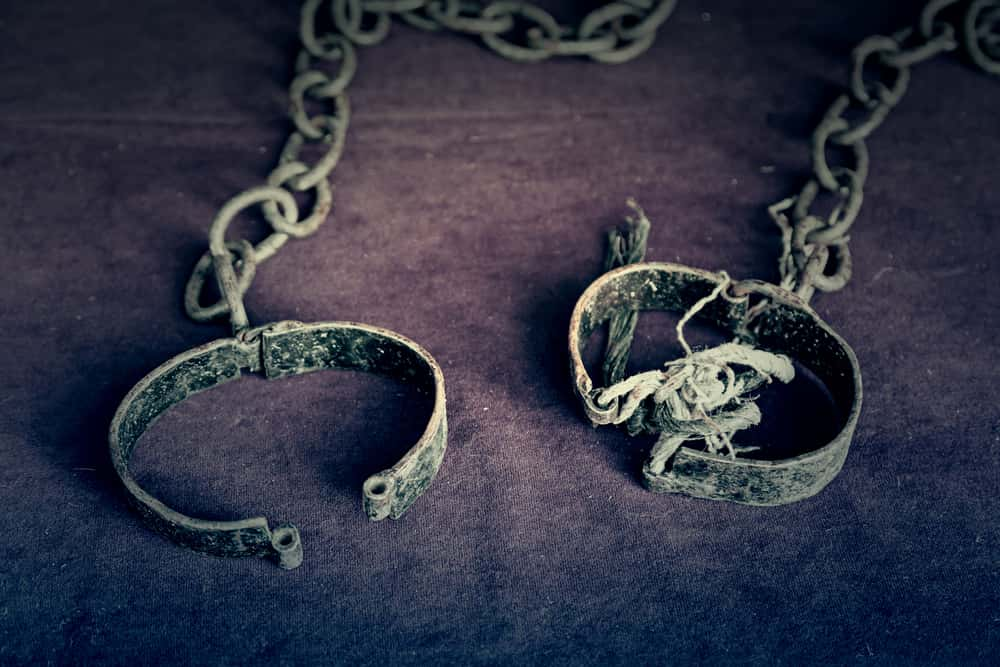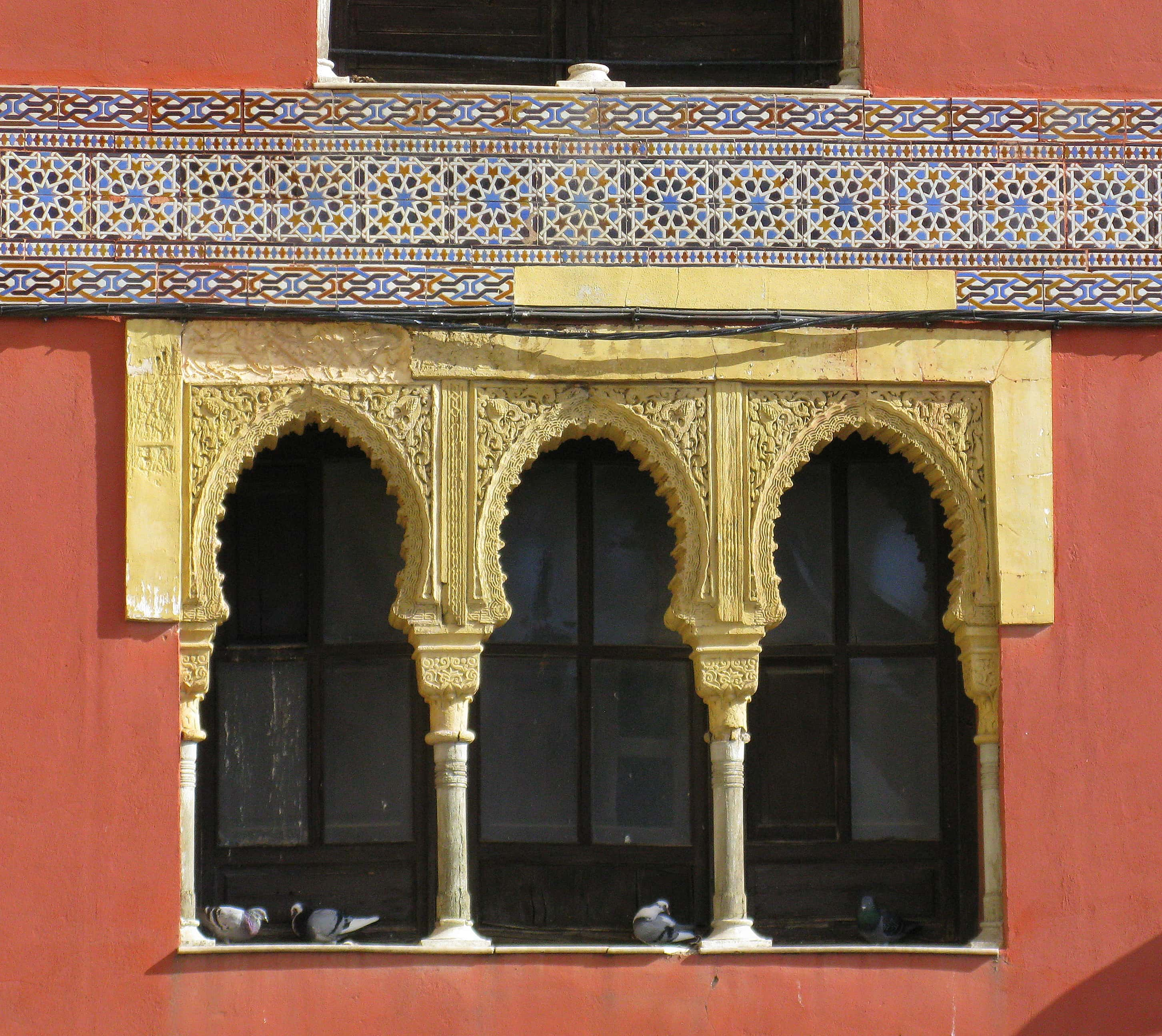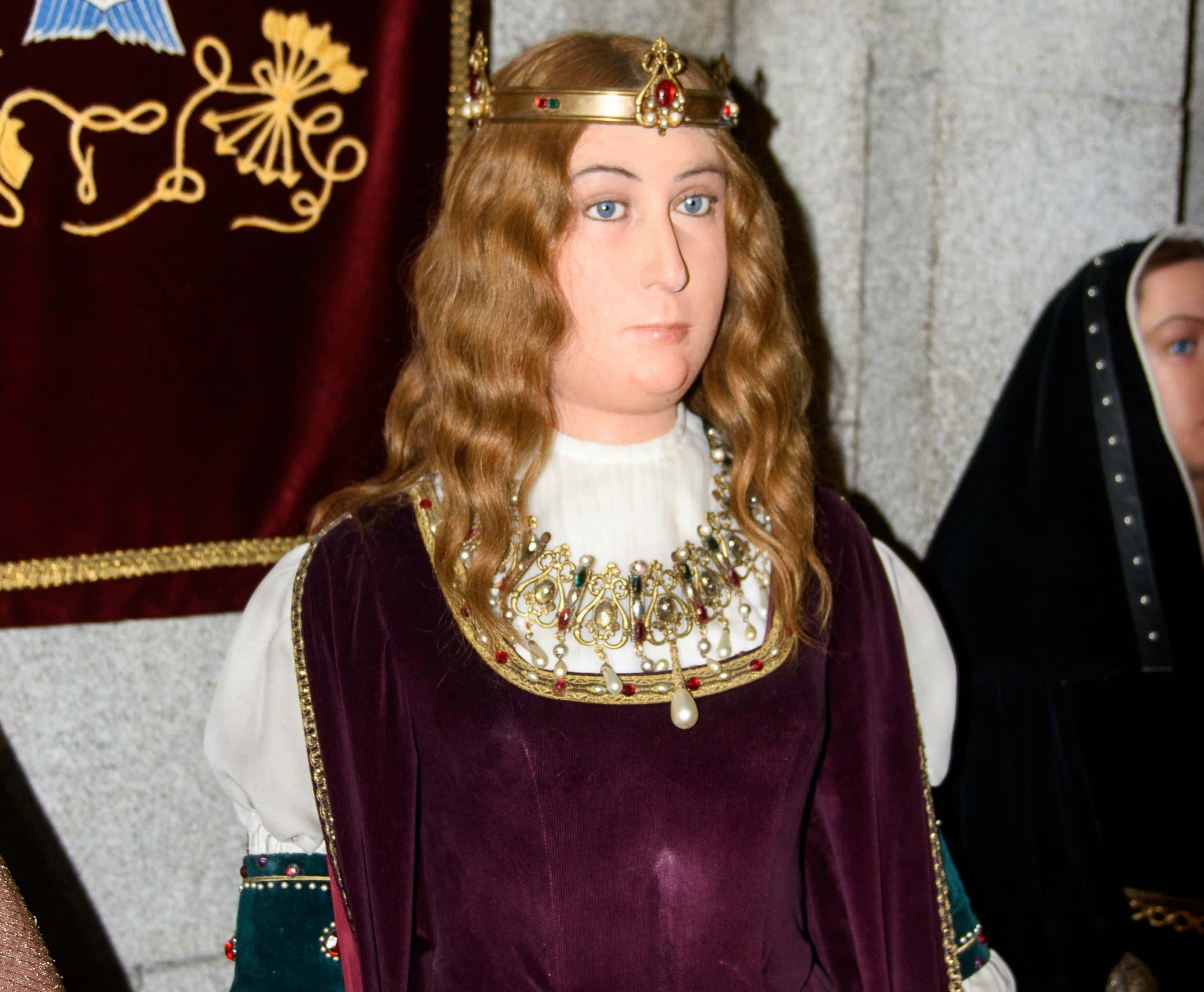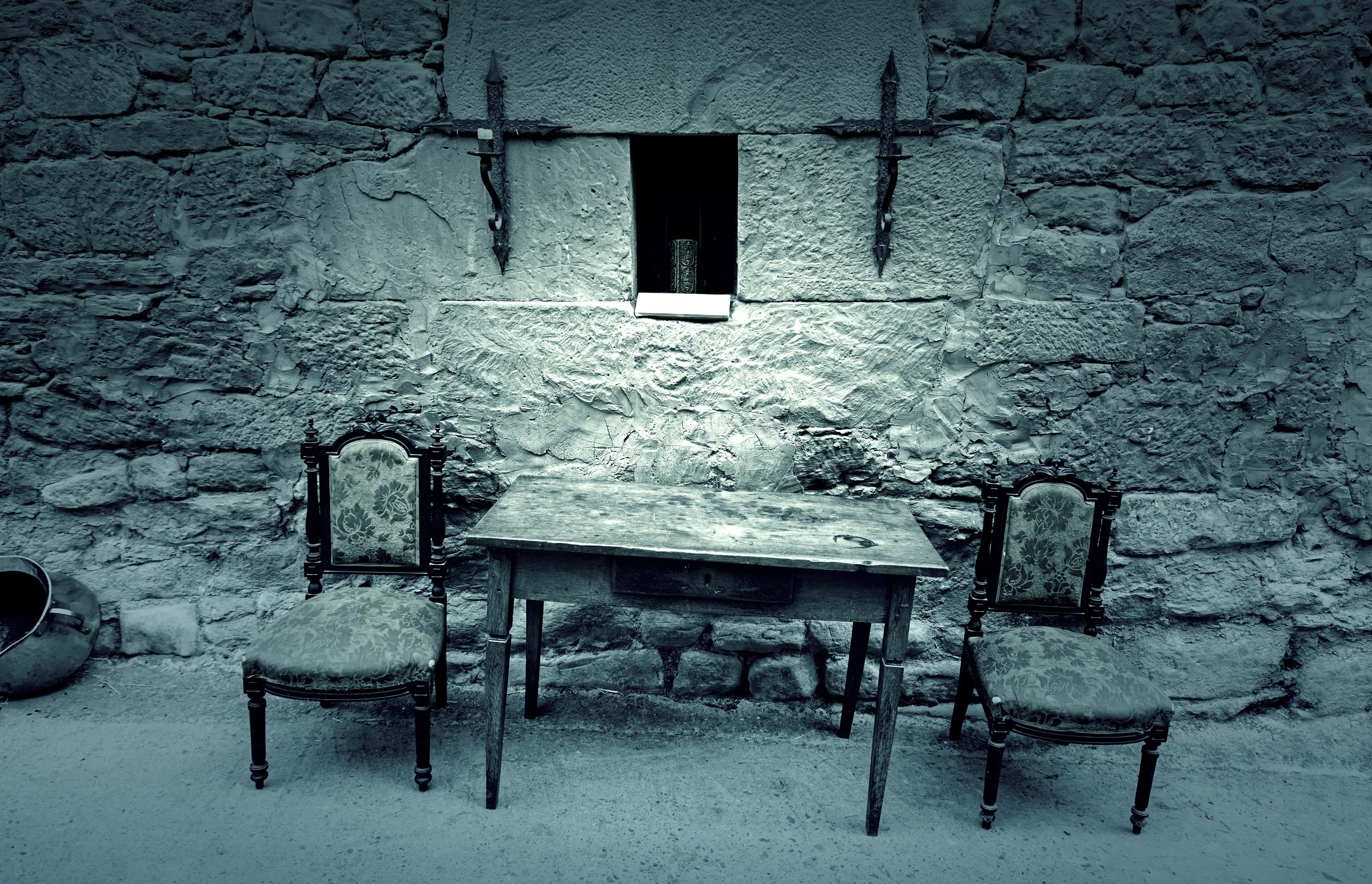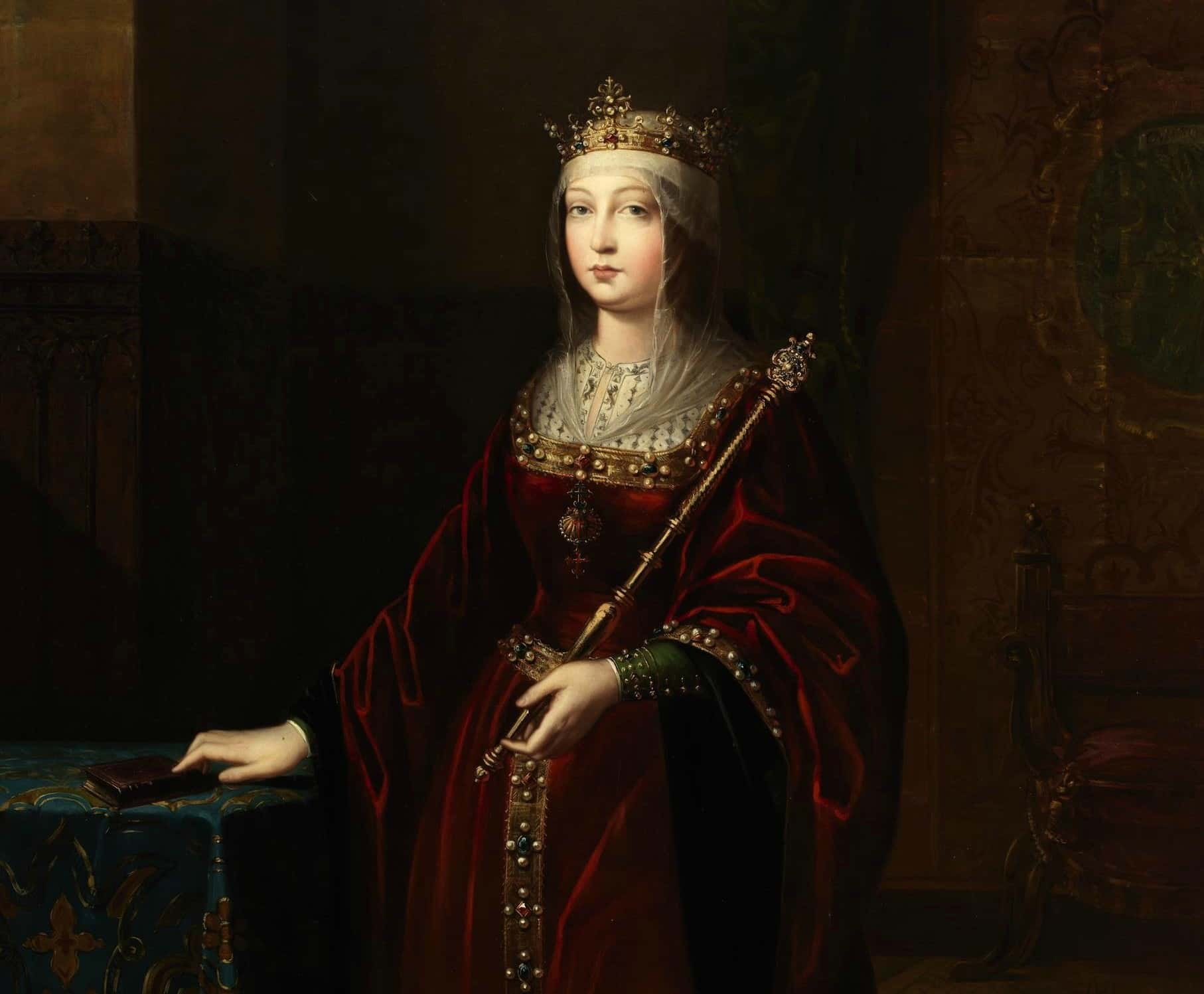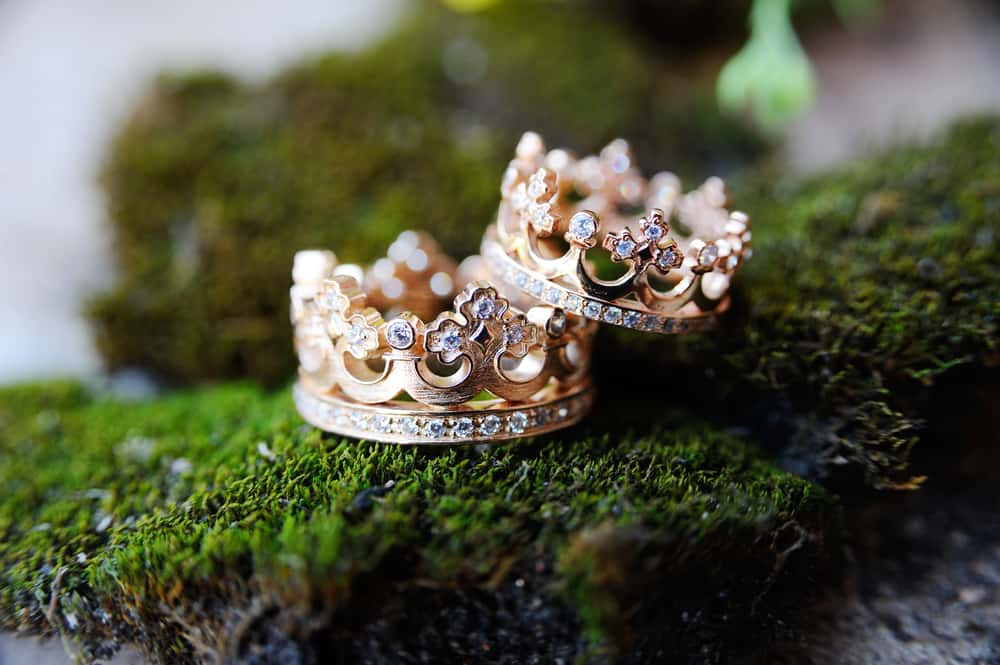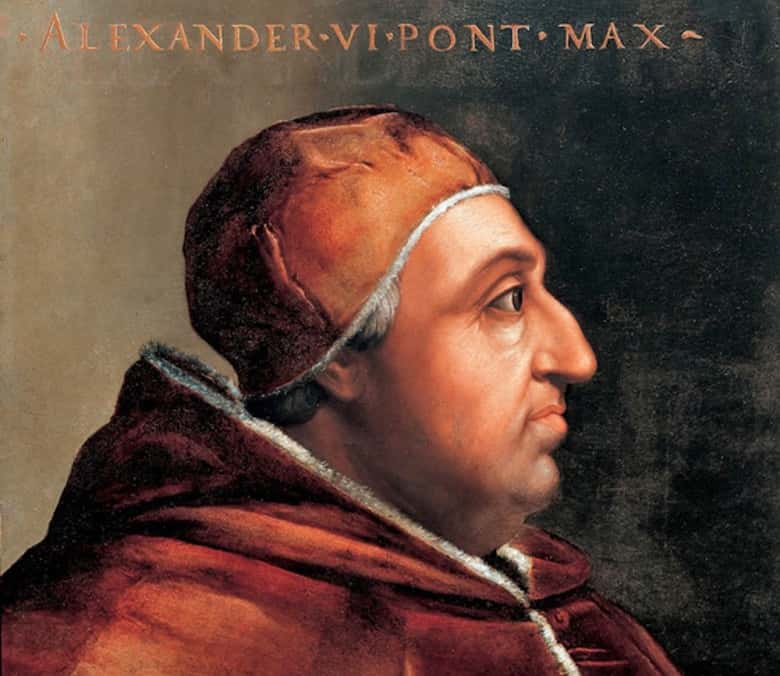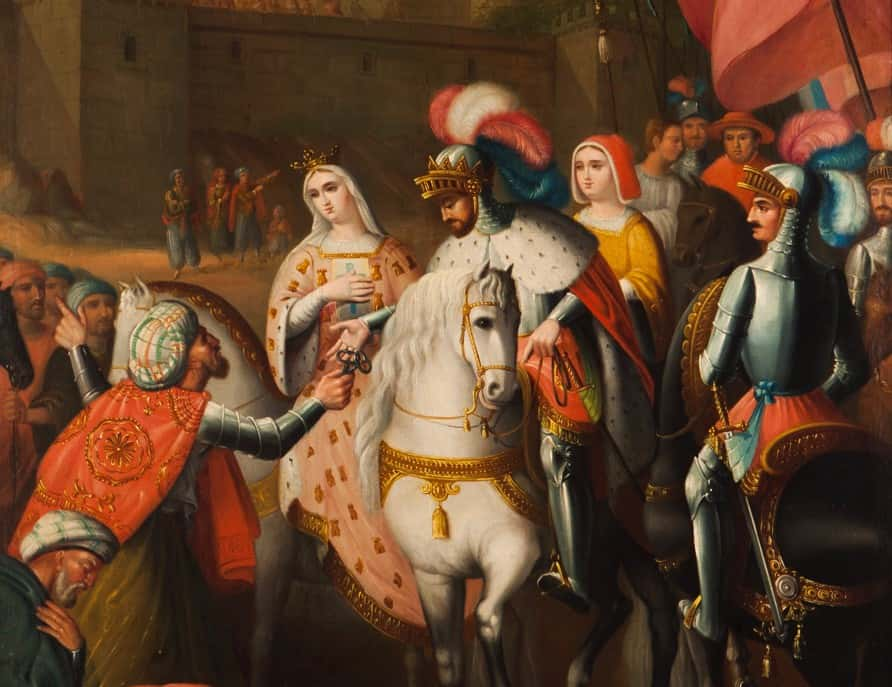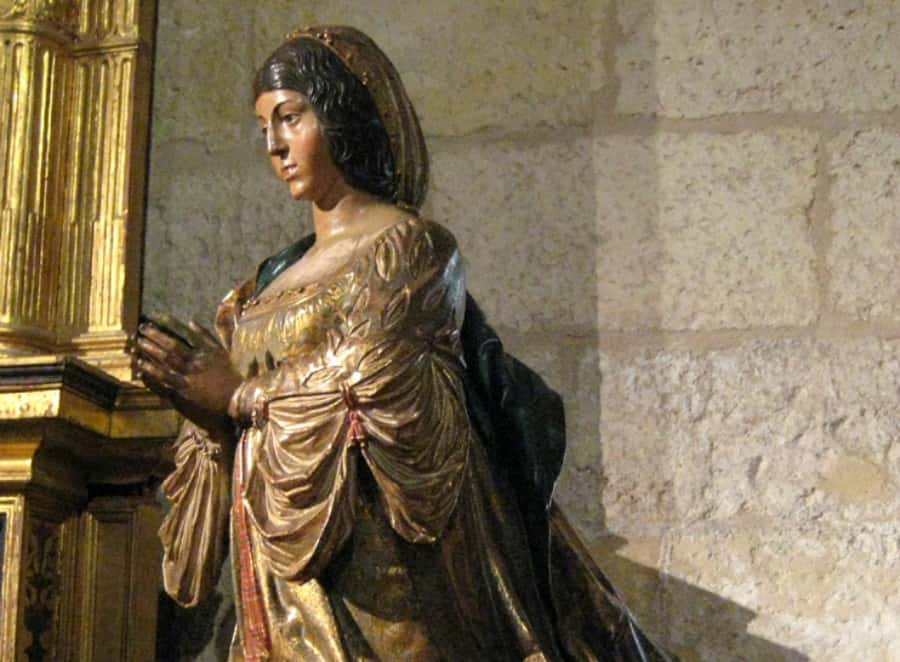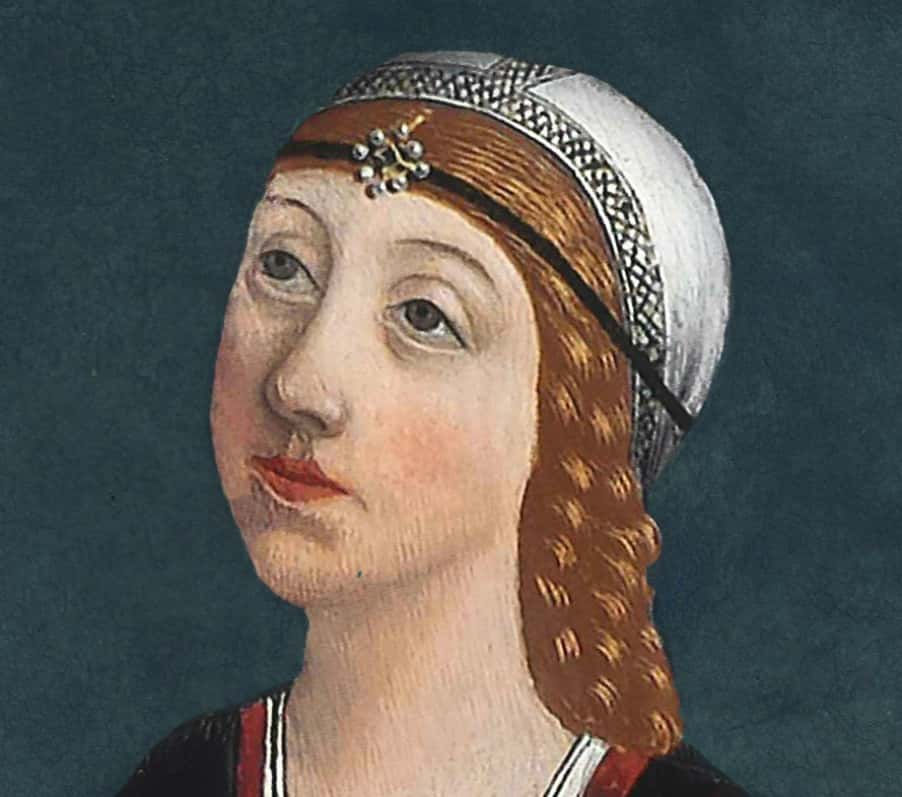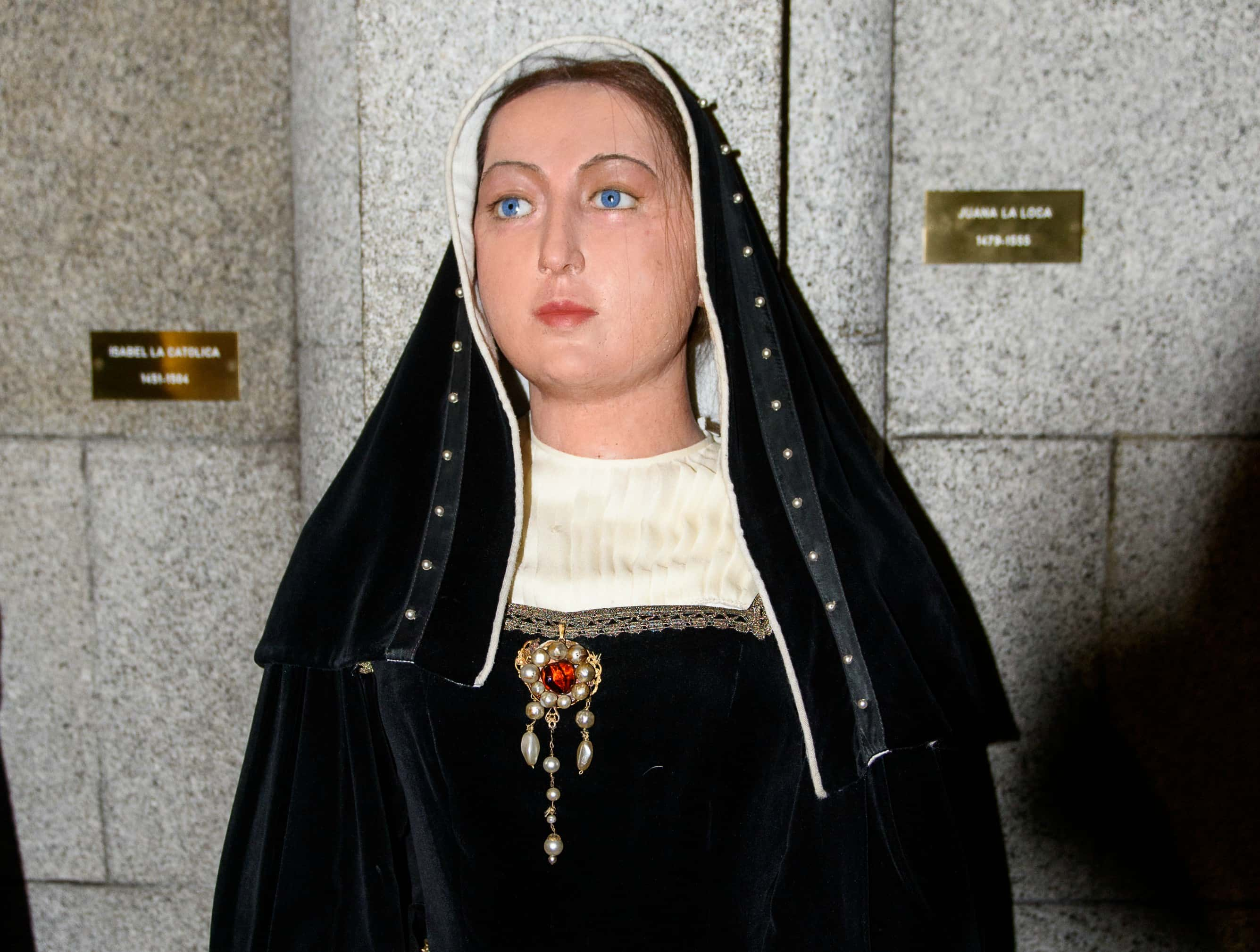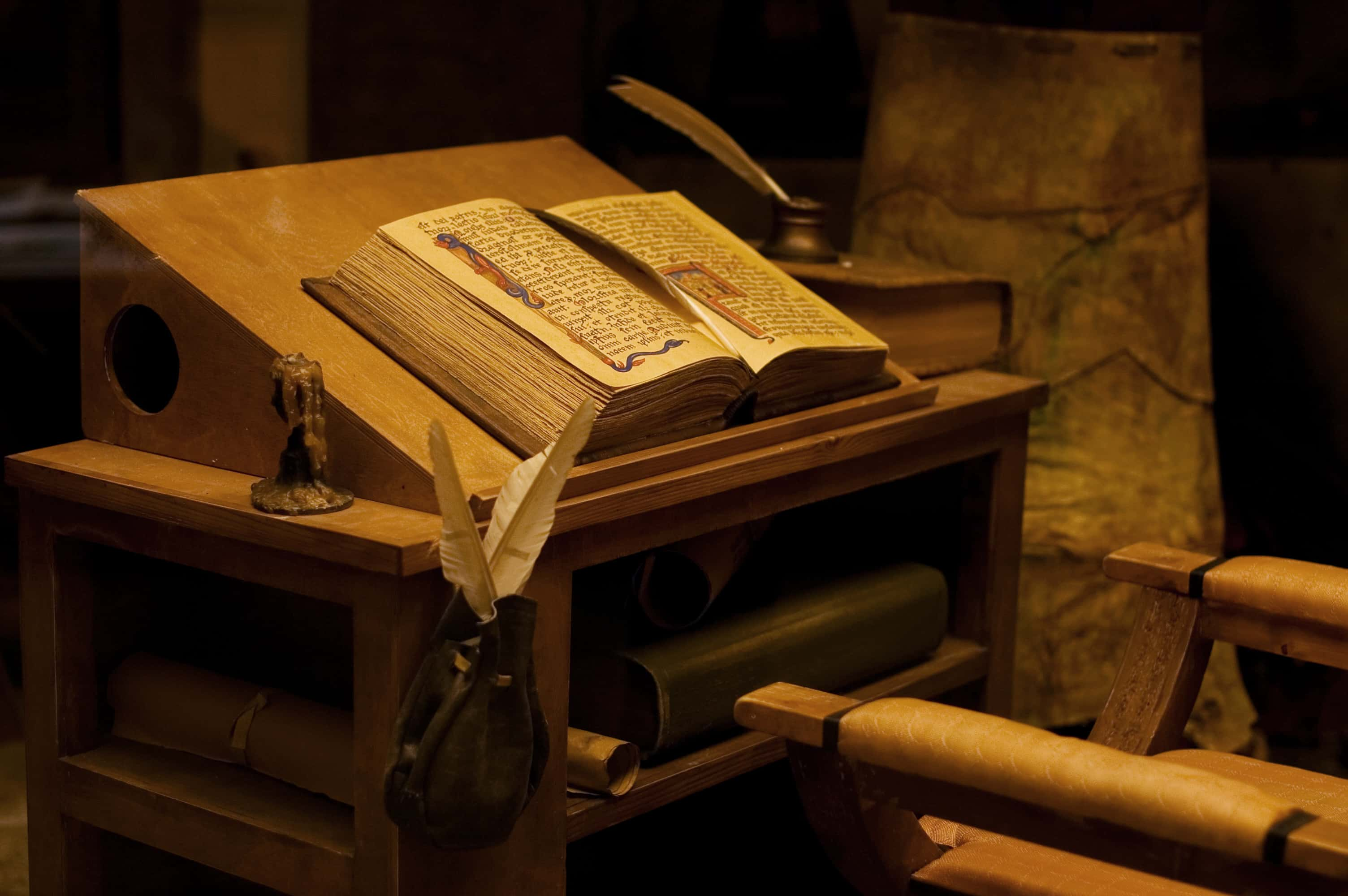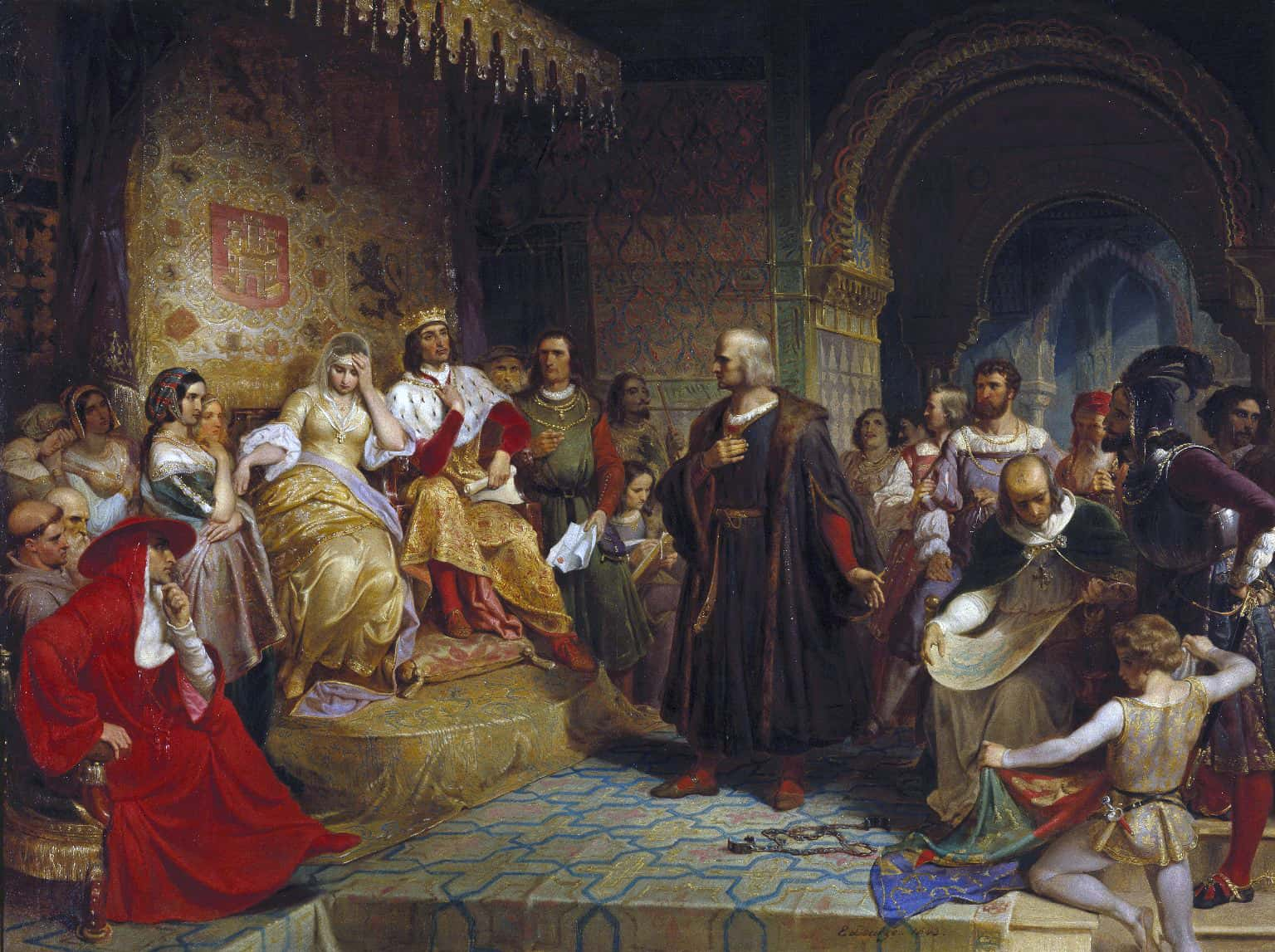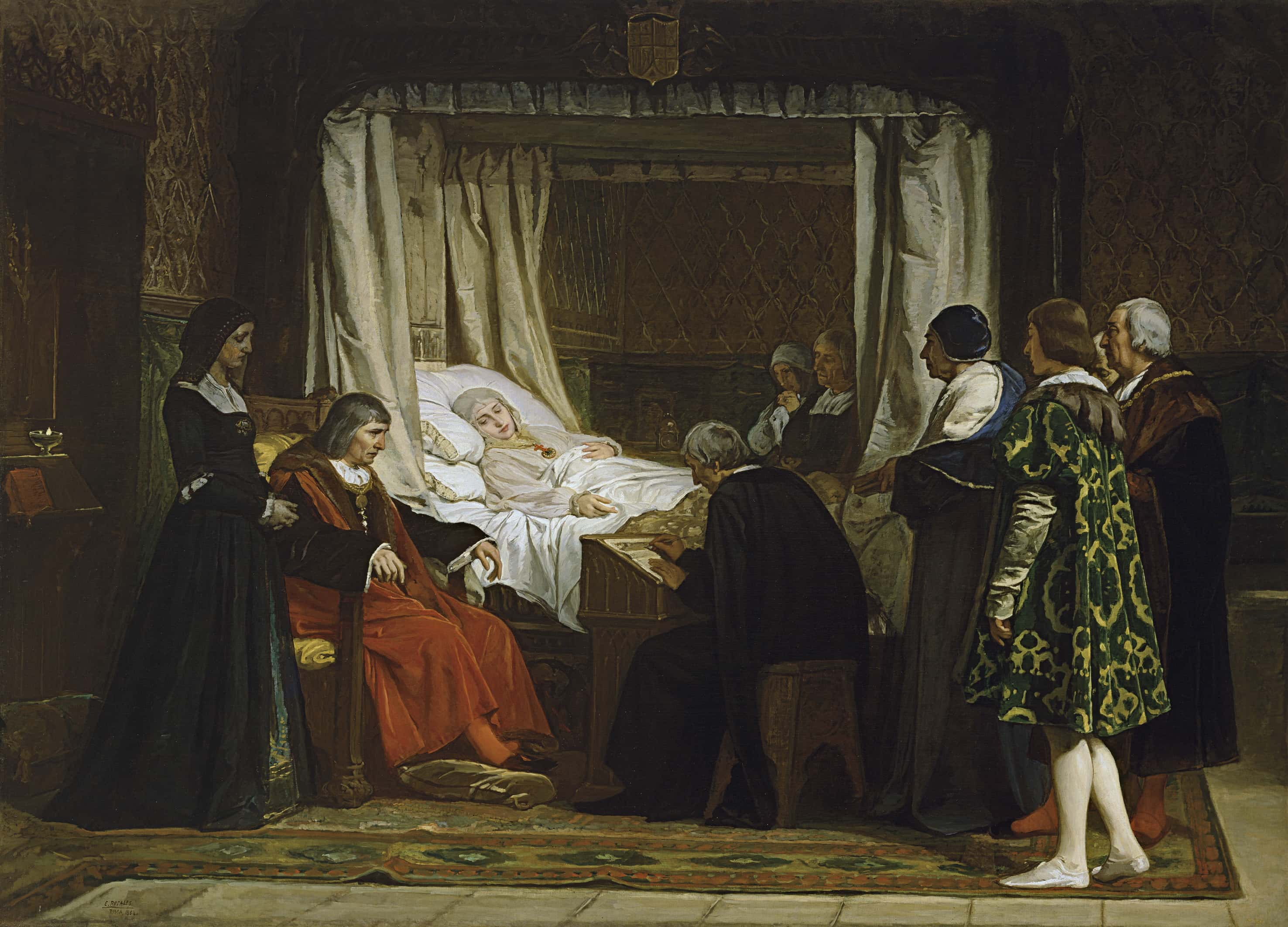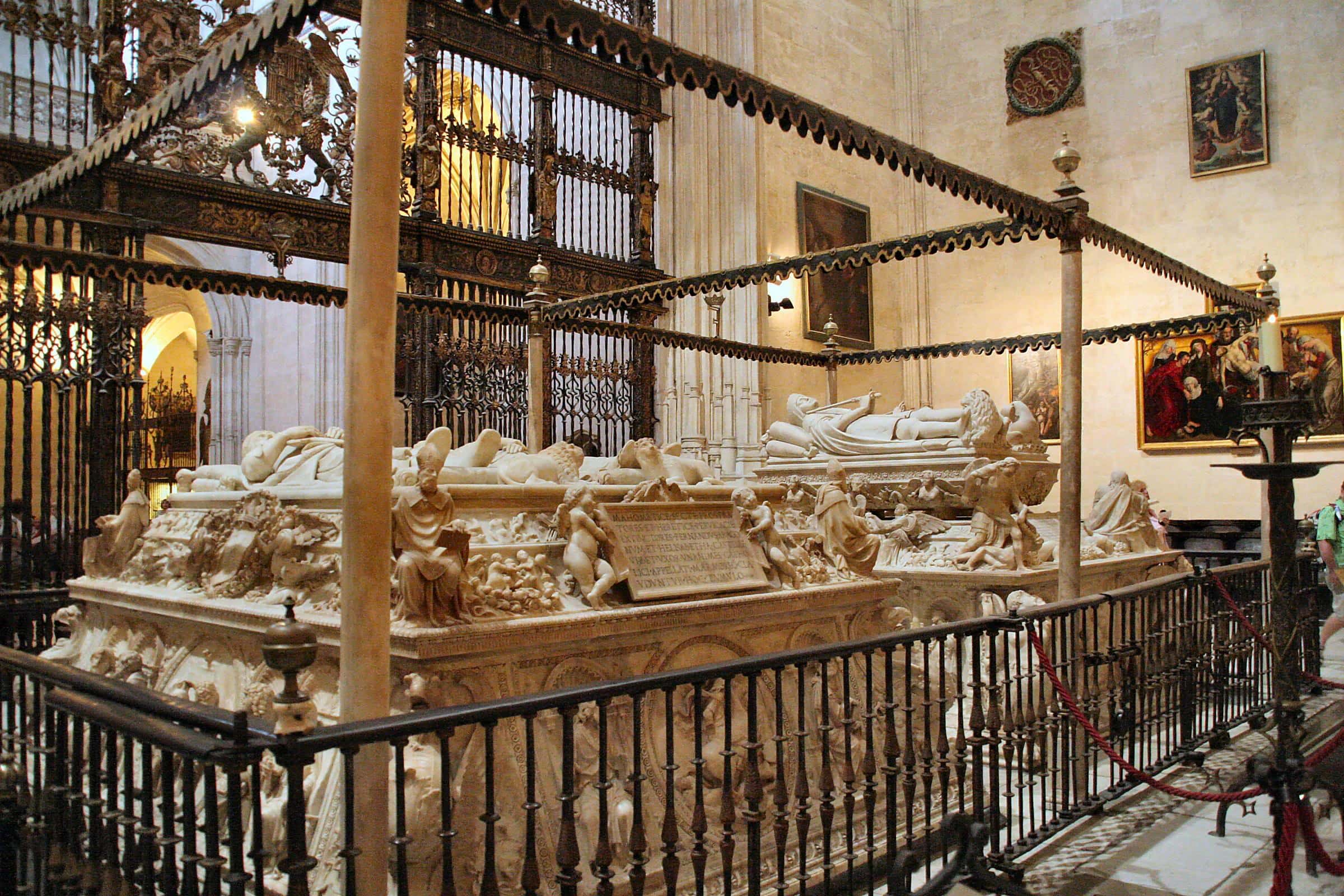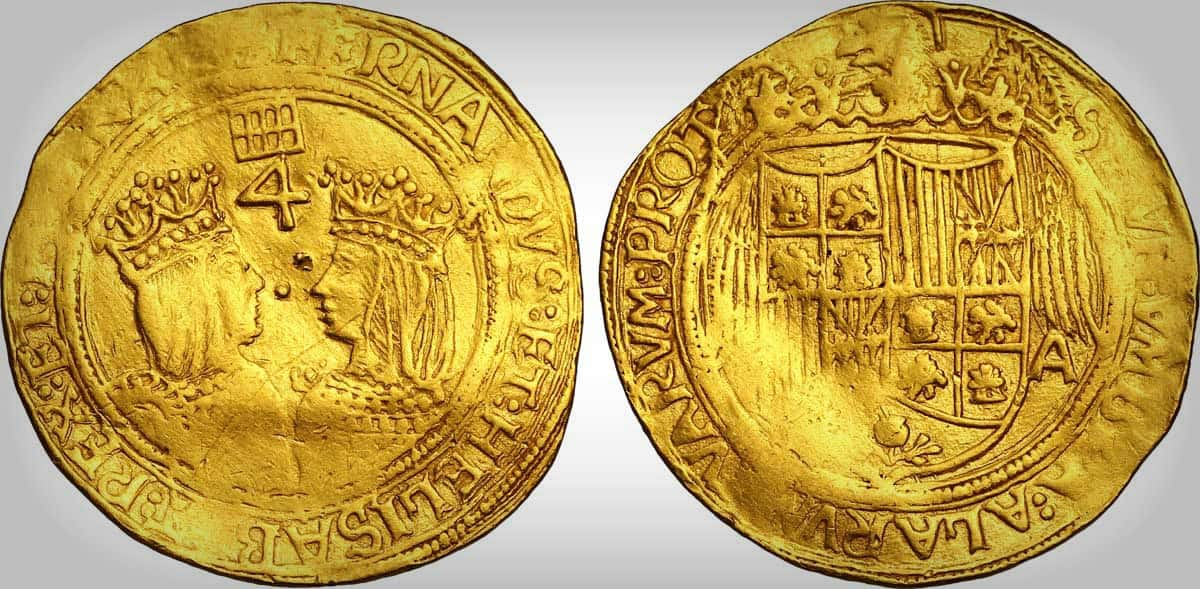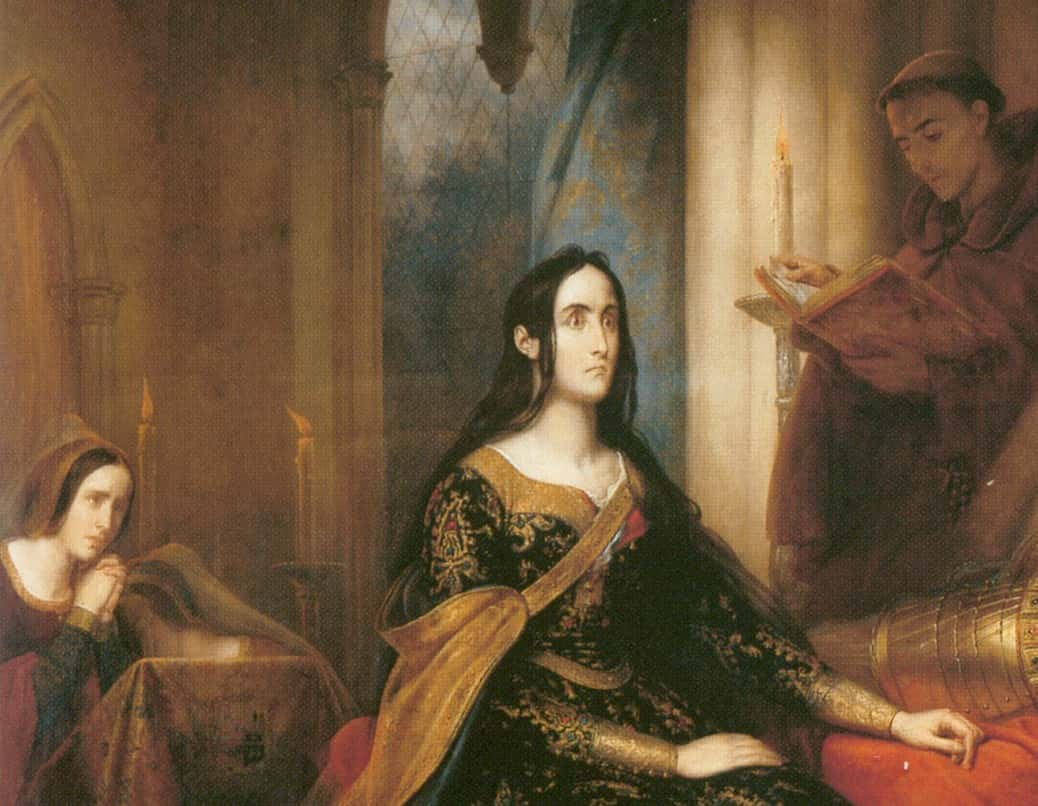Isabella of Castile is one of the most powerful queens in history. Alongside her husband, Ferdinand, she formed one-half of the Catholic Kings who took the world by storm. Her reign is best remembered for the unification of Spain, the beginnings of European colonialism, and the Spanish Inquisition. At what cost to her personal life? Did this queen really have it all? Bend the knee to these 42 devoted facts about Isabella of Castile.
1. Can’t Pray for This Kind of Service
In 1974, centuries after her death, Isabella of Castile and her husband were formally recognized as Servants of God by the Catholic Church. In life, the power couple consecrated as “Isabella and Ferdinand the Catholic” by Pope Alexander IV for their role in the Roman Catholic Inquisition.
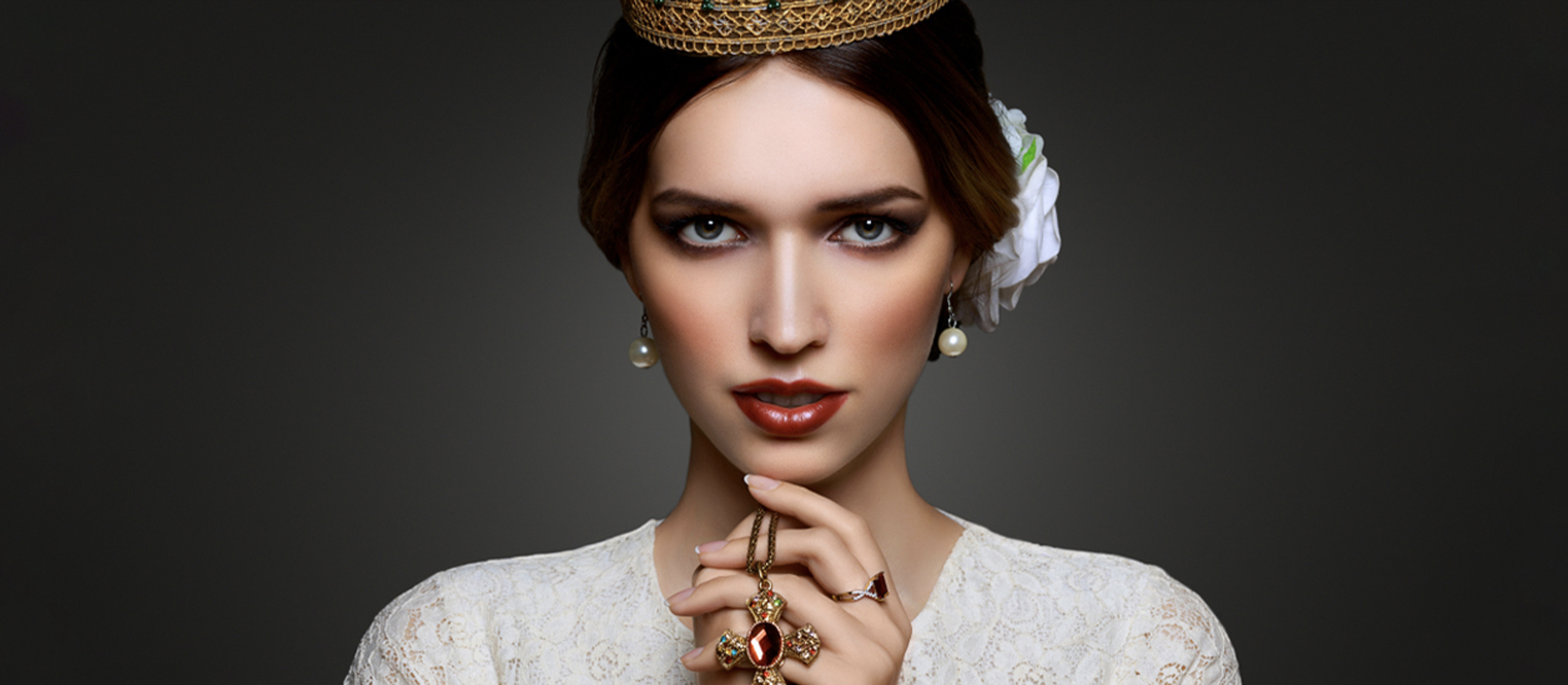
2. Born to Displease
John II of Castile and Leon welcomed Isabella to the world on April 22, 1451. Isabella’s paternal older half-brother, the future Henry IV of Castile, was already a 26-year-old at the time. Even after the arrival of her little brother, Alfonso, she would be a political nip at Henry’s heels as a competitor to the throne.
3. Prayer Is All We Have
Although her childhood was poor—by princess standards—Isabella’s mother ensured the girl never strayed from God. As her primary tutor, she instilled Isabella with a lifelong reverence for Roman Catholic piety.
4. Politics Is Not a Game
Ever wonder why the Queen is the most powerful piece in the board? Thank Queen Isabella of Castile. For centuries, there were no “female” chess pieces on the board. The rise of Isabella of Castile’s power in the 15th century coincides with the intro of this “queen” piece, who could roam free in all directions.
5. Watch Your Mouth
Big shocker: the Mother of the Spanish Inquisition was big on sensual propriety in her household. Isabella took it upon herself to guard her maids’ chastity. She strictly separated her male servants from the female to the point where the sexes couldn’t even eat together.
6. We’re All Spaniards
In 1815, the Order of Isabella the Catholic was created to recognize service to Spain. Perhaps in acknowledgment of her international reach, the Order has been offered to both Spaniards and non-Spanish recipients.
7. No Need for This Niece
Isabella infamously snubbed her niece in the Castilian succession. In order to avoid the ire of nobles, her brother King Henry named Isabella his heir instead of his own daughter, Joanna. The rejected princess was eventually sent to the Convent of Santa Clara, where she would sign her letters with “La Reina” (the Queen) for the rest of her life.
8. Curl Up With a Good Saga
Isabella’s bookshelf always kept the story of Joan of Arc on hand. This was the best you could do before bedroom idol posters.
9. So Long, Prince Harming
Would-be husbands for Isabella of Castile included the likes of Edward IV of England. There were also early talks to marry Isabella to Edward’s brother, Richard the Duke of Gloucester, AKA the infamous Richard III. Could you imagine that power couple?
10. His and Hers Crowns
Isabella and Ferdinand had one of the most famous royal prenups. In popular history, this agreement has gone by the famous motto, Tanto monta, monta tanto ("They amount to the same, the same they amount to"). The Catholic King would agree to rule jointly. Given that both Isabella and Ferdinand were heirs to huge sectors of the Spanish Peninsula, it was a good idea to establish clear boundaries on who owned what early on.
They were wed on October 19, 1469.
11. Family Feud
Despite being the official heir, Isabella battled with her own niece for the throne. When Henry IV passed on in late 1474, Princess Joanna’s faction would not give up power so easily. Joanna married her uncle, Alfonso V of Portugal, and the dueling couples warred for a year until the deciding 1476 Battle of Toro, where Isabella’s army proved successful. She officially became Isabella I of Castile.
12. Take My Horse to that Owl Town Road
You can’t accuse Isabella of being a backseat ruler. Early in her reign, the young queen rode in herself to negotiate on horseback with rebels of Segovia.
13. New Sherriff in Town
In 1492, Isabella ended the Reconquista—that 800-year period of Christian conquest over the Iberian Peninsula—with the conquest of Granada. The city had been under the Muslim Nasrid dynasty since the 1200s. The Catholic Monarchs spent 10 years trying to conquer the territory, which finally paid off with the capture and surrender of Muhammad XII.
Isabella and her husband received the keys to the city and consecrated the principal mosque into a Christian church.
14. Out of This World and Into Theirs
Queen Isabella was a patron of Christopher Columbus. However, she had rejected his proposal to reach the Indies through western trade paths three times until finally agreeing in 1492. His voyage marked the beginning of European expansion into the “New World.”
15. It’s A Not Fine Line
In the 1494 Treaty of Tordesillas, Isabella and Ferdinand divided the non-European world between themselves and Portugal. Of course, this line which dived the globe would move around immensely over the next hundred or more years as European colonialism got increasingly complicated.
16. Not Enough Room for All of Us?
1492 was a big year for Isabella. On March 31, 1492, Jews and Muslims were legally expelled from the newly united Spain via the Alhambra decree. This act sent approximately 200,000 people from their homelands. Even those who converted were still subject to investigation and persecution under the law.
17. A Face to Remember
In 1893, Isabella became the first woman to be featured on a combative US postage stamp. Of course, she had to share space on the 8-cent stamp with Christopher Columbus. In the same year, she was featured by herself on a US coin for the 400th anniversary of Columbus’s infamous voyage.
18. Never Too Late to Learn
Little is known about her early education, but Isabella was a mature student. She was 35 years old when she first started to learn Latin.
19. Born to Be Freed
By the standards of her day, Isabella was merciful to slaves. When Christopher Columbus brought over enslaved Indigenous Americans back to Spain, she demanded they be freed. I mean, it’s the absolute least she could have done.
20. At Least We Can Agree On Style
Despite her anti-Muslim policies in Spain, Isabella was favorable to Moorish décor and fashion trends.
21. Who’s the Fairest of Them All?
In terms of appearances, Isabella was short but strong-figured. She was also very fair-skinned with strawberry blonde to auburn hair. Of her children, it was Joanna of Castile and Catherine of Aragon who inherited her looks the most.
22. One Nation, One Faith, No Backsies
Isabella’s marriage to Ferdinand of Aragon physically unified Spain. However, their Catholic Inquisition was instrumental of spiritually unifying the new state. As a result, the Spanish Inquisition became a full-fledged movement under their reign.
23. Mother Mercy She is Not
Under the incompetence of Henry IV of Castile, the kingdom had fallen into disrepair and general chaos. It was said a man could commit a crime spree through Castile without much hassle. Isabella is largely credited with legal reforms that brought the crime rate to the lowest it had been in decades. Of course, this also earned her a reputation as unforgiving and less inclined to mercy when compared to her husband.
24. My Litter of World Leaders
Altogether, Isabella and Ferdinand have five surviving children: Isabella, John, Juana (sometimes called Joanna), Maria, and Catherine. The latter part of Isabella’s reign was dedicated to connecting Spain to as many European crowns as possible via illustrious marriage matches for the kids with Portugal, Austria, Burgundy, and England.
25. You’re Lucky to be Wearing That Hat
In spite of her fidelity to Roman Catholicism, Isabella was no personal fan of the Pope, who gave her the title of “Catholic Monarch.” Pope Alexander VI, AKA that Rodrigo Borgia, led a “secular” life of eroticism and scandal that the socially conservative Isabella did not approve of.
26. Not One to Cut and Run
Isabella’s match to Ferdinand was certainly political, but it was also passionate. It reportedly took just days after their marriage for Isabella to become pregnant. In one early letter, Ferdinand jokingly threatens to cut someone if his beloved wife doesn’t write back soon: “One day we will return to our first love. But if your ladyship does not wish to be responsible for homicide, you must write and let me know how you are.”
27. You Don’t Need a Sword to Cut Someone
Contrary to popular images, Isabella was not a frontline warrior queen. Nevertheless, she was directly involved in battlefield strategy, acting as quartermaster-general and planning attack routes with her husband.
28. The Son Sets
Isabella and Ferdinand’s dreams of a unified dynasty passing smoothly to their son were dashed on October 4, 1497. Their only male heir, John, perished at the age of 19, leaving behind a pregnant wife and soon-to-be stillborn daughter.
29. Don’t Call Us, We’ll Call You
Isabella of Castile is not an official Catholic Saint…yet. She has remained “on the path” to canonization since 1974, after her designation as Servant of God. Seeing as a few decades have passed since then, we’ll have to get back you on that…
30. Little Miss Legacy, Lost
After the loss of her only son, Isabella’s firstborn daughter and namesake, Isabella, became the heir to Castile. Tragically, this child was not long for the world either: Isabella Jr. died giving birth to her only son, Miguel. Adding to the family’s misfortunes, Miguel passed on at age two. If he had lived, the boy would have been king of both Spain and Portugal.
31. Prequels Are the Worst
By 1502, Isabella’s marriage plans for her kids had mostly gone bust. Her youngest daughter, Catherine of Aragon, had been wed to the Tudor heir, Prince Arthur of Wales. Unfortunately, the teenaged boy perished just months after the marriage. Not one to give back that big dowry to Isabella, Henry VII of England kept Princess Catherine to marry either himself or to his surviving son, the future Henry VIII.
What could go wrong?
32. Mad About You
Following the demise of Isabella’s two oldest children, her third-born child Joanna of Castile became heir to her dynasty. Of course, Joanna “the Mad” didn’t get that nickname for being a stable ruler. Not that mom didn’t help…
33. School is Actually the Best School
Isabella’s daughters were among the most educated princess of Europe. They received schooling on par with their brother in languages, philosophy, law, theology, and other subjects by Italian humanist tutors. Seeing as Isabella had a neglected upbringing and was largely self-taught, she perhaps wanted her kids to have the support she did not.
34. You Won’t Regret Planning for The End
Isabella’s husband Ferdinand was nearly assassinated when greeting Columbus back to Spain in 1492. Of course, the attempt failed. In the aftermath, the nearly widowed Isabella wrote, “kings can die of some disaster like other people, there is reason to prepare to die well.”
35. Imperialism Going on 30
After 30 years of rule, Isabella of Castile drew her last breath on November 24, 1504. She was 53 years old.
36. The Final Get-Together
Isabella is currently entombed in Granada alongside her husband, her daughter Joanna, Joanna’s husband’s Phillip the Handsome, and Isabella’s 2-year-old grandson Miguel. This big dynasty was all put under one post-mortem roof by Charles V of Spain, Isabella’s grandson via Joanna, and the first true heir to the united Spanish empire.
37. Second Family, Second Thought
When Isabella was just three years old, her father, King John II of Castile, passed on. The old king arranged for his Isabella, her mother, and her infant brother to be taken care of. Unfortunately, Isabella’s half-brother, King Henry, was less inclined to look after his half-family. For most of her early childhood, Isabella lived in aristocratic poverty with her mom and brother.
38. Little Brother, Big Expectations
In 1468, Isabella’s younger brother Alfonso succumbed to the plague—or, according to some, poison. On a whim, she found herself the primary contender to rule Castile. Before his demise, highborn rebels fought to get Alfonso named heir to their brother, King Henry. Upon the death of Alfonso, Isabella was next in line.
39. Blood is Thicker Than Water, But Thinner Than Self-Interest
Isabella and her brother Henry had a pretty decent deal. Henry wouldn’t force her to marry without her consent, and would also declare Isabella as heir to Castile before his own daughter; Isabella wouldn’t lead a rebellion, nor marry without his permission. Of course, both ended up reneging on this arrangement, Henry tried to force Isabella out of Castilian politics by marrying her off to France.
To her credit, Isabella made secret plans to elope with future Ferdinand II of Aragon. Where’s the trust in this family?
40. The Red String of Fate (or Trauma)
It’s hard when your mom embodies the Spanish Inquisition. Isabella didn’t always get along with her daughter and successor, Joanna “the Mad” of Castile. As a child, Joanna wasn’t always given to Isabella’s devout worship and was perhaps even skeptical of religion! This was punished by subjecting Joanna to “La cuerda,” an old-fashioned discipline technique where the willful daughter would be suspended by rope with weights on her feet.
41. I Could (Never) Imagine Replacing You
Her husband’s sense of ownership over Spain didn’t die with Isabella. Upon Isabella’s passing, Castile went to her daughter Joanna—but Ferdinand of Aragon refused to give up his co-rulership. He stubbornly minted coins that honored, "Ferdinand and Joanna, King and Queen of Castile, León and Aragon.”
42. A Gruesome Souvenir
After what her mother had put her through, Joanna “the Mad” didn’t learn to take other trauma well. When her husband Philip of Burgundy died, Joanna literally refused to let go of his rotting body. When her father Ferdinand stepped in to finally bury the body, Joanna ordered it exhumed, leapt at his coffin, and kissed his cold feet.
From that moment on, she brought his coffin with her everywhere, even her bed. Only years later did she return Philip to the ground—burying him right outside her window.


